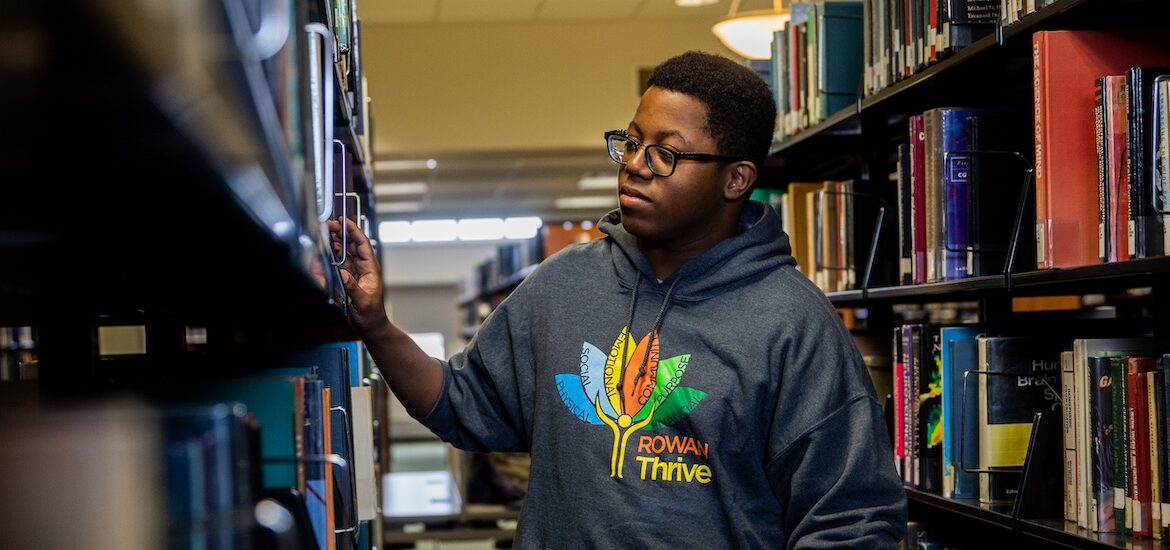Part of a series with Rowan University’s Wellness Center, this collaboration aims to educate students about personal well-being options. For further updates, follow @rowanuwellness on social. Written by Nardin Salib, Wellness Center intern and graduate student pursuing a master’s in higher education Whether you are a traditional graduate student entering your program directly after undergrad, […]
internships
Helpful Ways to Cope After Seasonal Depression

Part of a series with Rowan University’s Wellness Center, this collaboration aims to educate students about personal well-being options. For further updates, follow @rowanuwellness on social. Written by Kaitlyn Jennings, graduate student pursuing a master’s in higher education Seasonal Depression is a type of depression that happens during certain seasons of the year, mostly in the […]
Simplifying Mental Health: Making Gratitude Part of Daily Routine
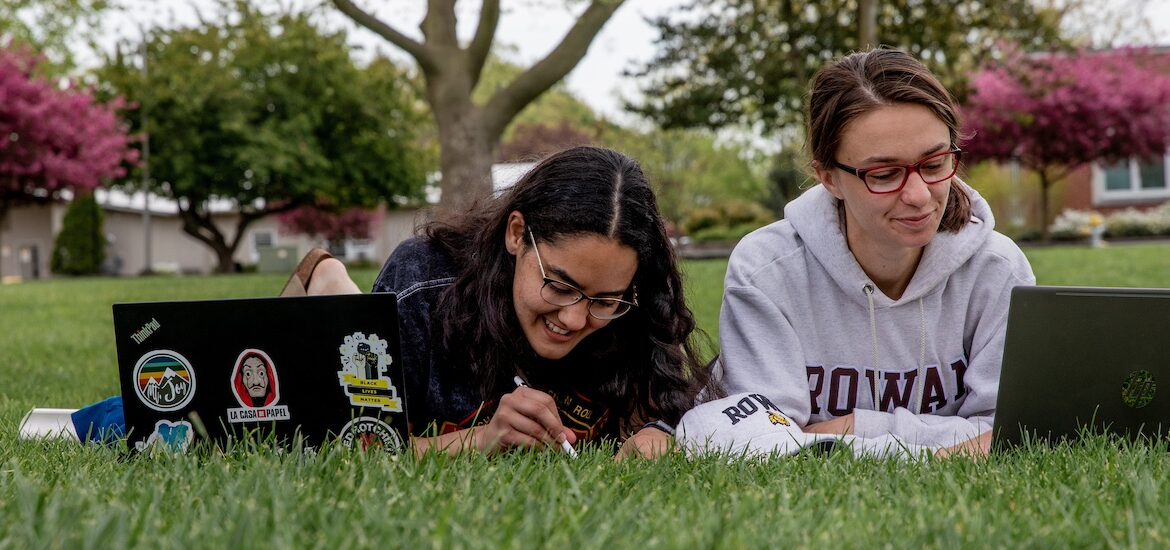
Part of a series with Rowan University’s Wellness Center, this collaboration aims to educate students about personal well-being options. For further updates, follow @rowanuwellness on social. Written by Wellness Center intern Nadia Elbanna, sociology major Mental health has become a major topic of conversation in recent years, which has been largely beneficial. However, it can also […]
The Psychology of Colors
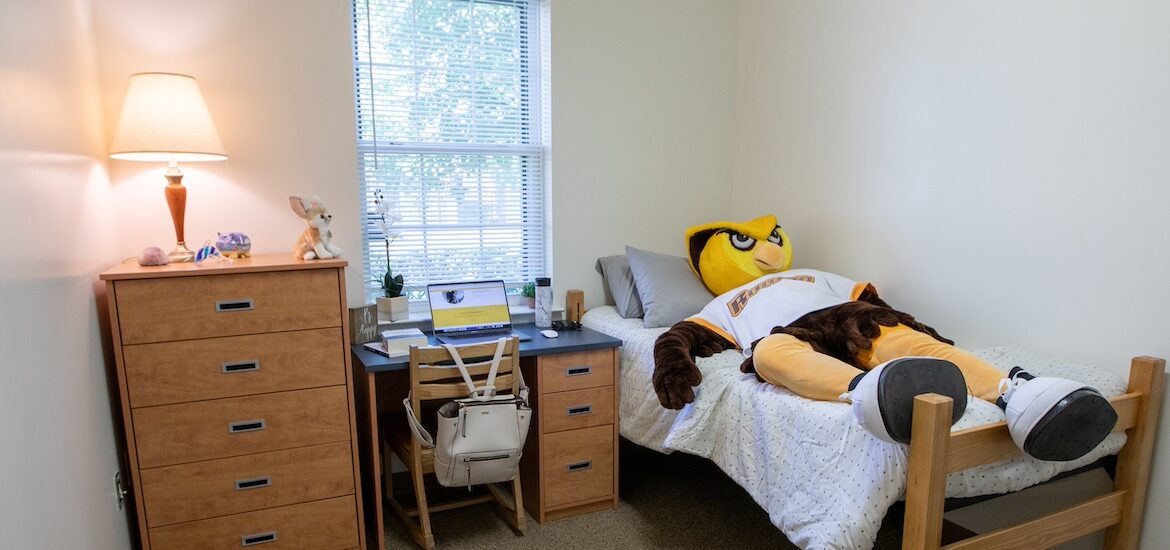
Part of a series with Rowan University’s Wellness Center, this collaboration aims to educate students about personal well-being options. For further updates, follow @rowanuwellness on social. Written by Wellness Center intern Anmol Patel, molecular & cellular biology major When students first walk into their dorm room on move-in day, they are greeted by plain walls, minimal […]
Why Self-Care Matters More Than Ever in College
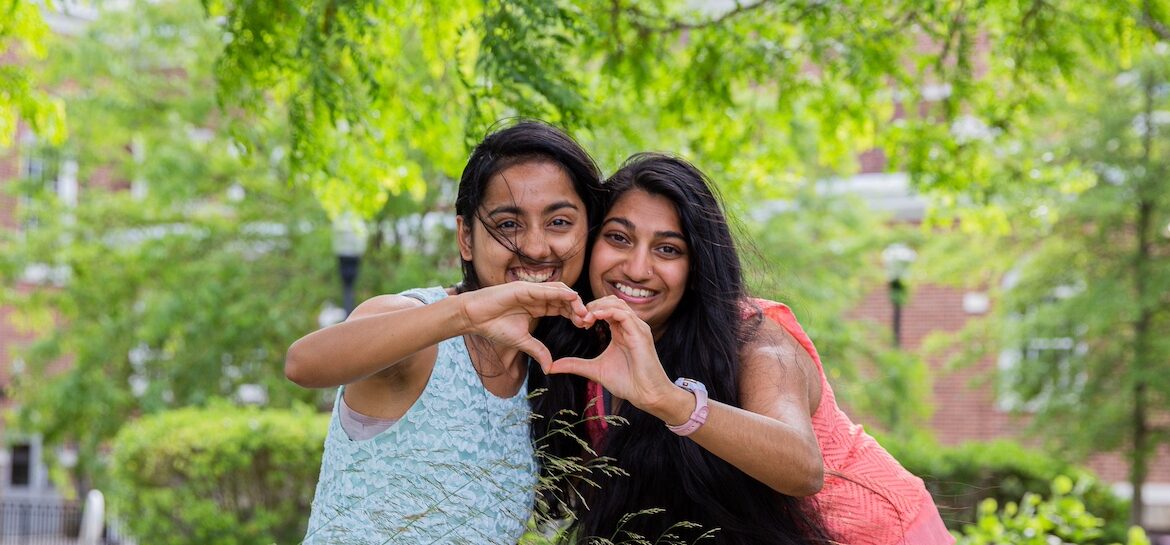
Part of a series with Rowan University’s Wellness Center, this collaboration aims to educate students about personal well-being options. For further updates, follow @rowanuwellness on social. Written by Wellness Center intern Gia Torsiello, psychology major When life gets overwhelming, stress can quickly build up, leading to anxiety, burnout, and even depression. As you read this blog, […]
Burnout in College: Seeing the Signs & How to Recover
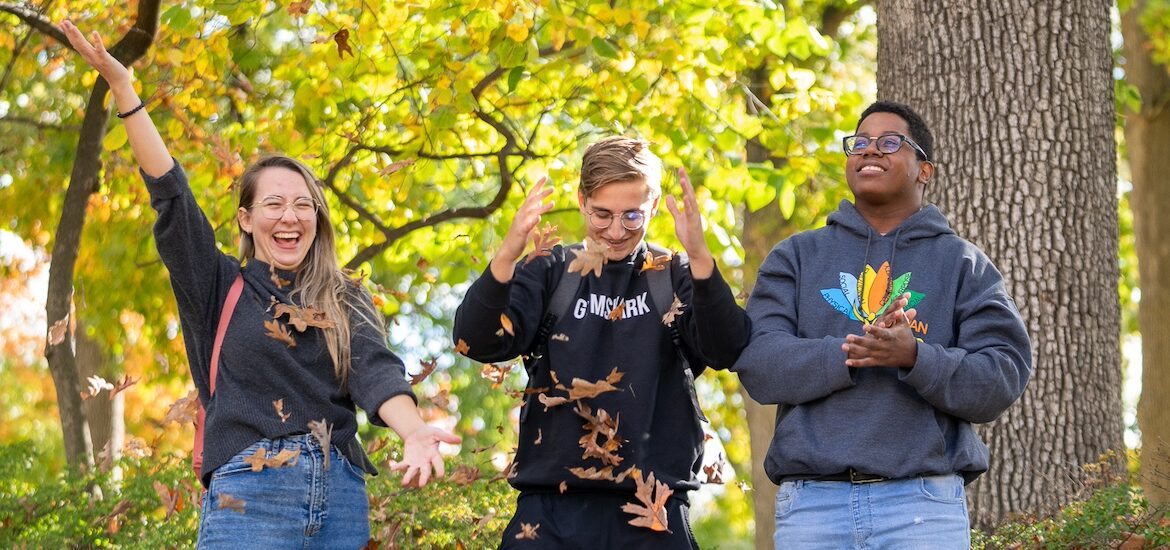
Part of a series with Rowan University’s Wellness Center, this collaboration aims to educate students about personal well-being options. For further updates, follow @rowanuwellness on social. Written by Wellness Center intern Amya Dickens, psychology major What is Burnout? Burnout is a state of chronic stress and exhaustion caused by academic and personal demands. Leah Rockwell, LPC, […]
How To Cope With Social Anxiety In College
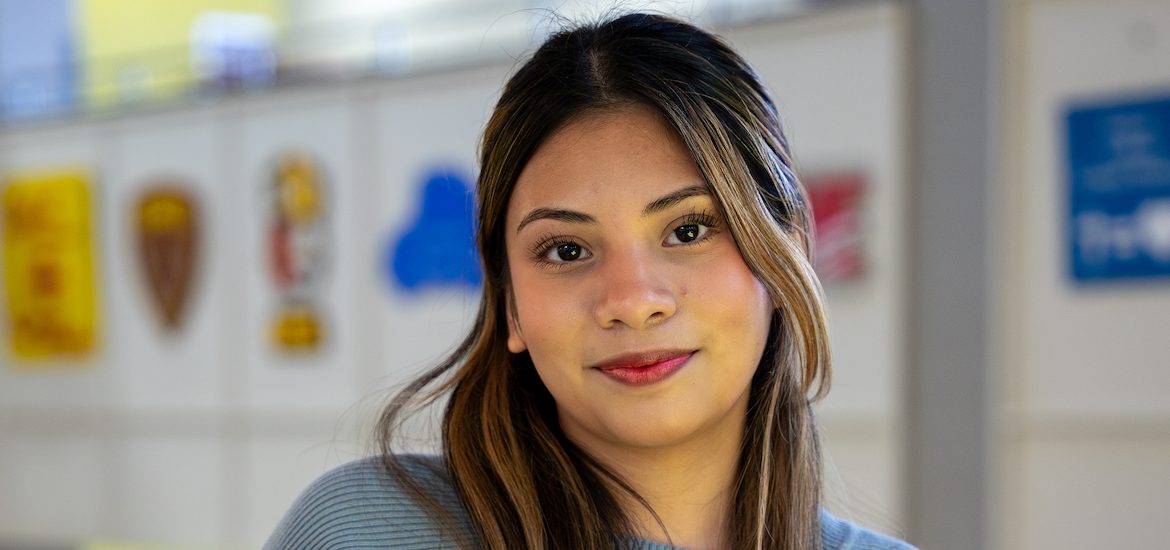
Part of a series with Rowan University’s Wellness Center, this collaboration aims to educate students about personal well-being options. For further updates, follow @rowanuwellness on social. Written by Wellness Center intern Estrella Delgado, recent law & justice studies graduate Socializing with others can come very easily to some people, while to others it is a lot more difficult […]
Stress In College Students: A How To Helpful Guide
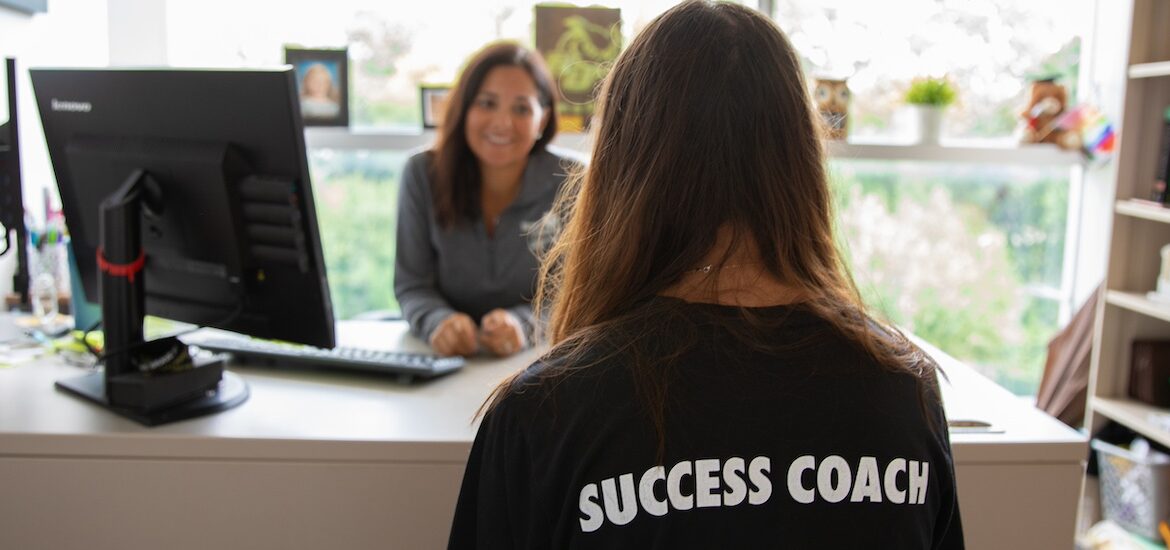
Part of a series with Rowan University’s Wellness Center, this collaboration aims to educate students about personal well-being options. For further updates, follow @rowanuwellness on social. By: Estrella Delgado, Wellness Center intern and recent law & justice studies graduate College can be a fun and adventurous experience, especially when first starting college. But it can also […]
Rowan Finance Major Lands Prestigious International Internship
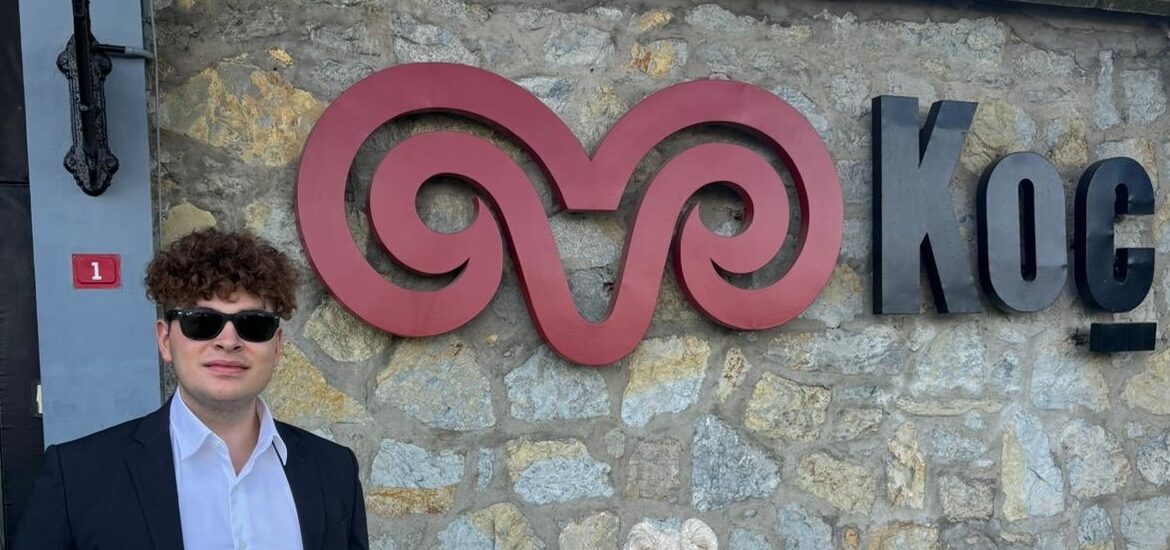
Tyler Guner Shares His Summer Internship Experience with Turkey’s Leading Conglomerate Experiential learning takes many forms at Rowan University, including internships, student teaching, clinical and lab work, and research. Meet Tyler Guner, a Rowan University finance major with a minor in management information systems (MIS). A go-getter who landed an incredible summer internship thousands of […]
What Can You Do With A Data Science Degree? One Professor Explains The Possibilities [VIDEO]
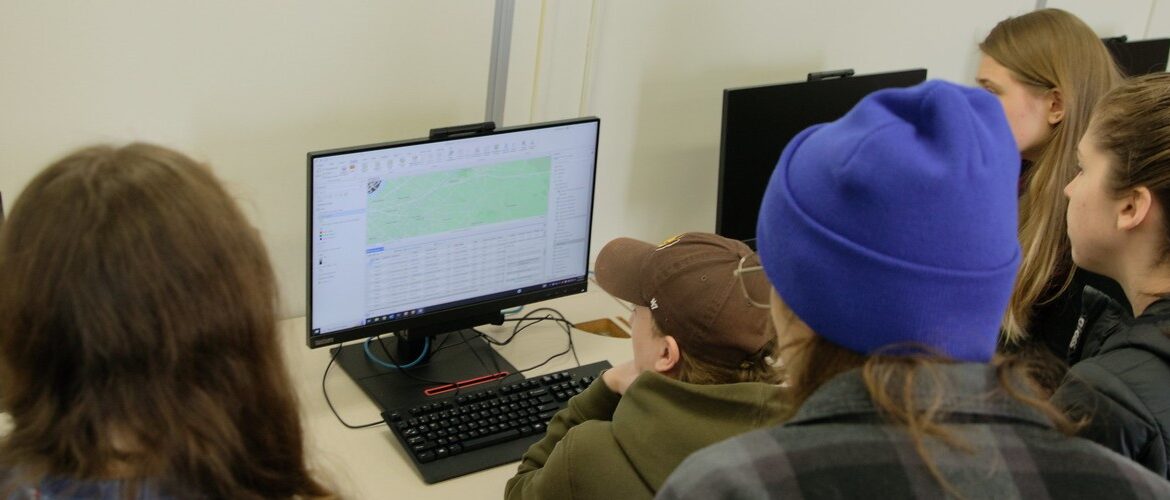
Data Science at Rowan University: Real-World Skills, Hands-On Experience, and Endless Career Opportunities Charalampos “Babis” Papachristou, Ph.D., is an Associate Professor and Assessment Coordinator for the College of Science and Mathematics at Rowan University. Here, he discusses the possibilities for careers and programs for students pursuing a Data Science degree at Rowan, whether those students […]
Professional Goals of One Rowan University Biomedical Engineering Student
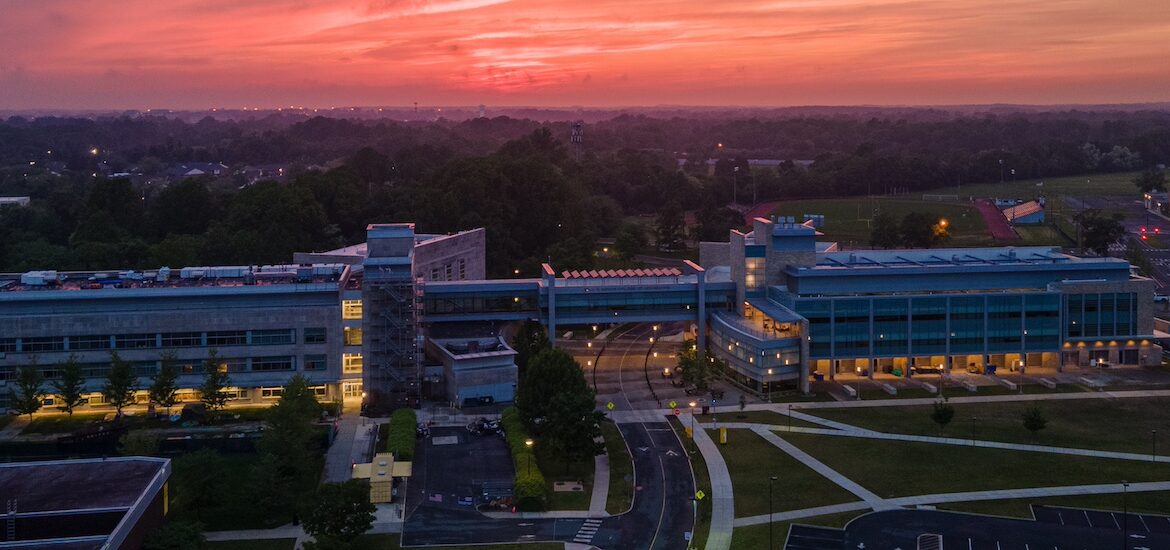
A Brief Glimpse Inside the Biomedical Engineering Program at Rowan University Meet Nia Bellopede, a senior Biomedical Engineering major from Sewell, NJ (Gloucester County.) When we spoke with Nia this summer as a rising senior who had recently completed her junior year, she shared that one of her most immediate goals was for this fall: […]
What Do You Do When You’re Burned Out From What You Love?
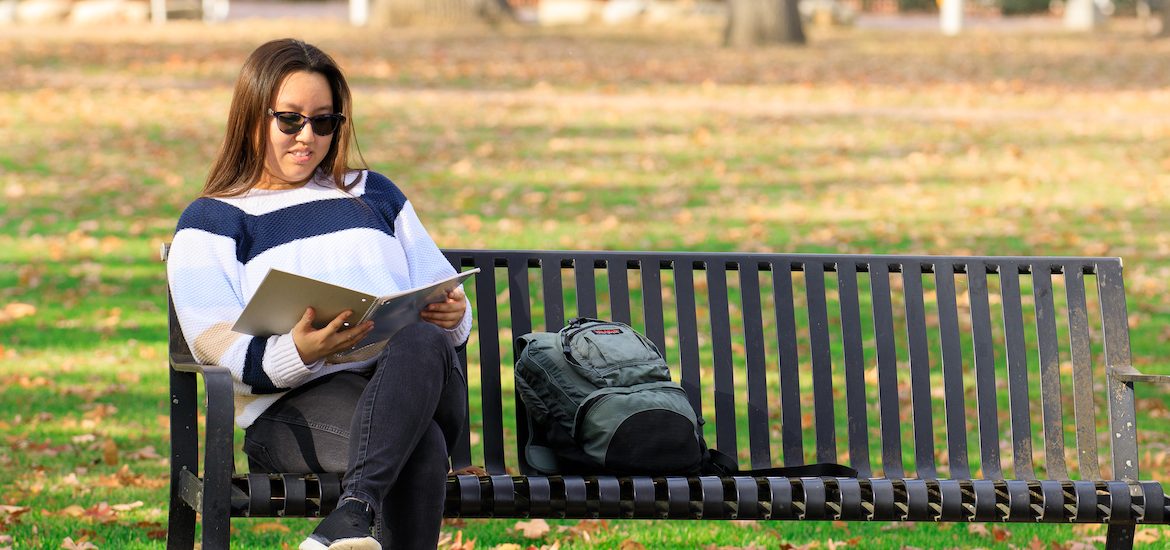
Part of a series with Rowan University’s Wellness Center, this collaboration aims to educate students about personal well-being options. For further updates, follow @rowanuwellness on social. Written by Suzie Tse, graduate student pursuing a master’s in higher education Have you ever felt a sense of overwhelming mental and physical exhaustion deep in your bones? Did lack […]
Professional Goals of One Rowan University Advertising Major
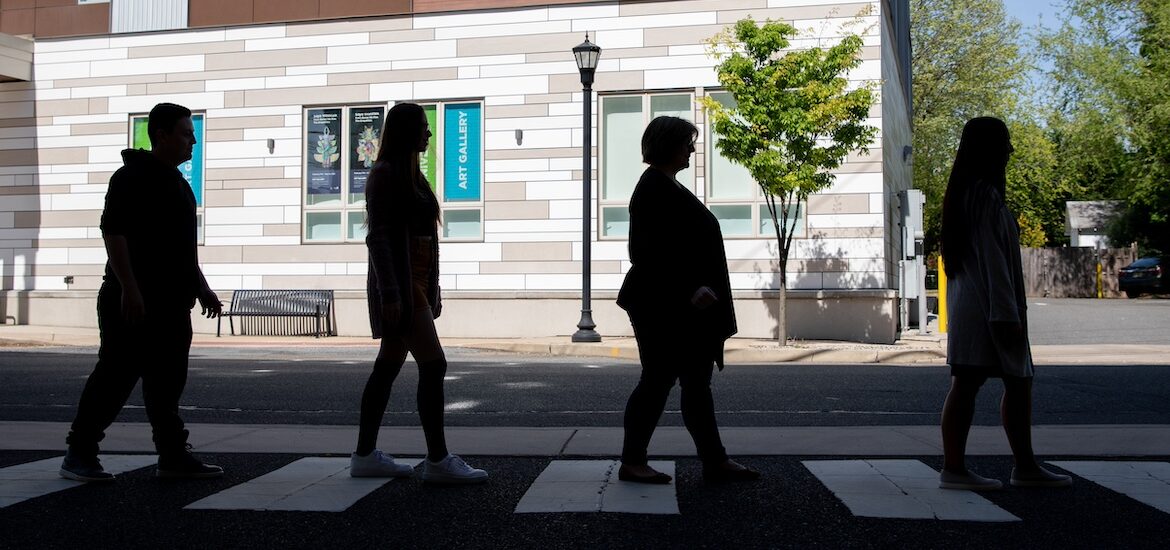
A Brief Glimpse Inside the Advertising Program at Rowan University Meet Nathan Astorga, a recently graduated Advertising major and Rowan College of South Jersey transfer student from Sicklerville, NJ (Camden County.) When we spoke with Nathan last semester, he was wrapping up his last coursework to earn both a bachelor’s of art in advertising, as […]
Three International Students Students Share Their Professional Goals
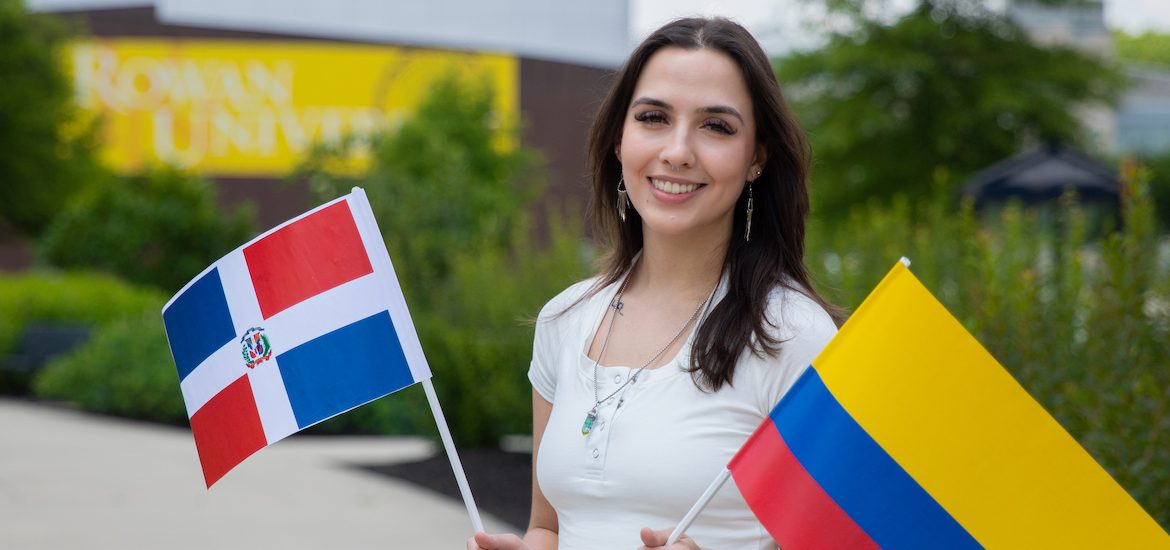
Three transfer students to Rowan University share their very different goals and intended career paths as International Studies majors. As a major, international studies blends disciplines to deepen students’ understanding of the world. Six concentrations – international politics, economics, geography, languages, history and cultures – allow students to customize their path to fit their dreams […]
International Student College Juniors Reflect on Their Journeys and Goals at Rowan University
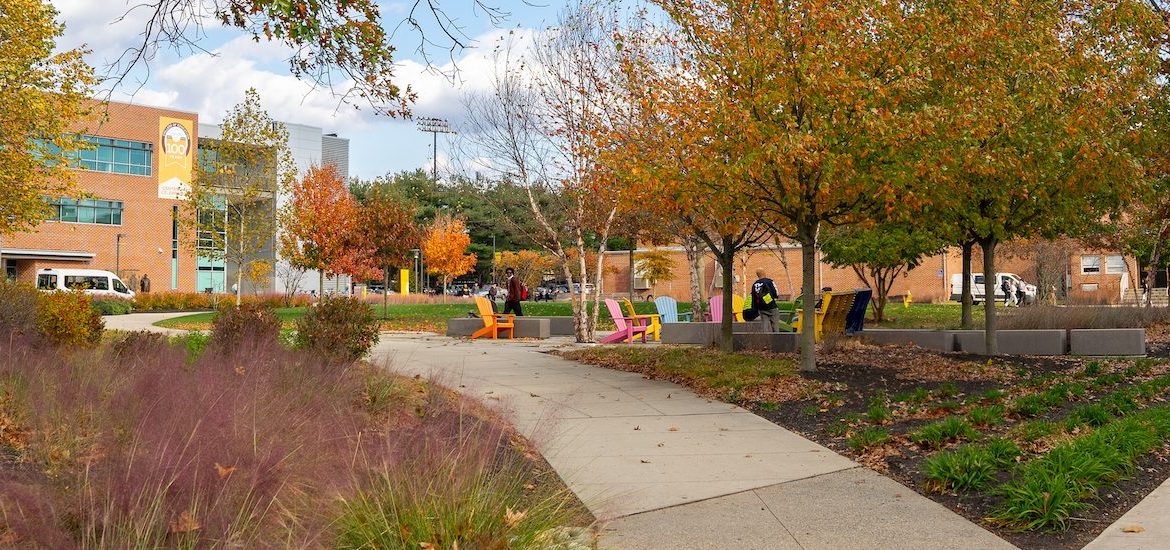
This story is one within a multi-part series highlighting the aspirations, hopes and dreams of a few of Rowan University’s international students. Read the other stories. Meet rising seniors Aayush Kapri from Nepal, Doménica Gusqui Gavidia from Quito, Ecuador, and Abigail Jones from Port of Spain, Trinidad and Tobago. What is your long-term professional goal […]
Light and Dark Moments in Grief

Part of a series with Rowan University’s Wellness Center, this collaboration aims to educate students about personal well-being options. For further updates, follow @rowanuwellness on social. This story is by Dabany Garris, senior psychology major with a concentration in child behavioral services. Grief is something you can not fully understand unless you experience it. The anger, […]
Seasons of Life by Suzie Tse

Part of a series with Rowan University’s Wellness Center, this collaboration aims to educate students about personal well-being options. For further updates, follow @rowanuwellness on social. This story is by Suzie Tse, a graduate student in the MA Higher Education: Academic Advising. Here at Rowan University in southern New Jersey, we experience a temperate climate. We […]
Rowan University Social Media Seeks Student Workers

Award-Winning Social Team Seeks Students For Experiential Learning Opportunities On Rowan’s Glassboro Campus Be creative. Be dynamic. Be a part of Rowan University’s social media team. With paid student worker positions available within both content creation and social media community monitoring, gain the experience you need to propel your post-graduation career forward with a well-rounded […]
3 Seniors Share What’s Next After Graduation
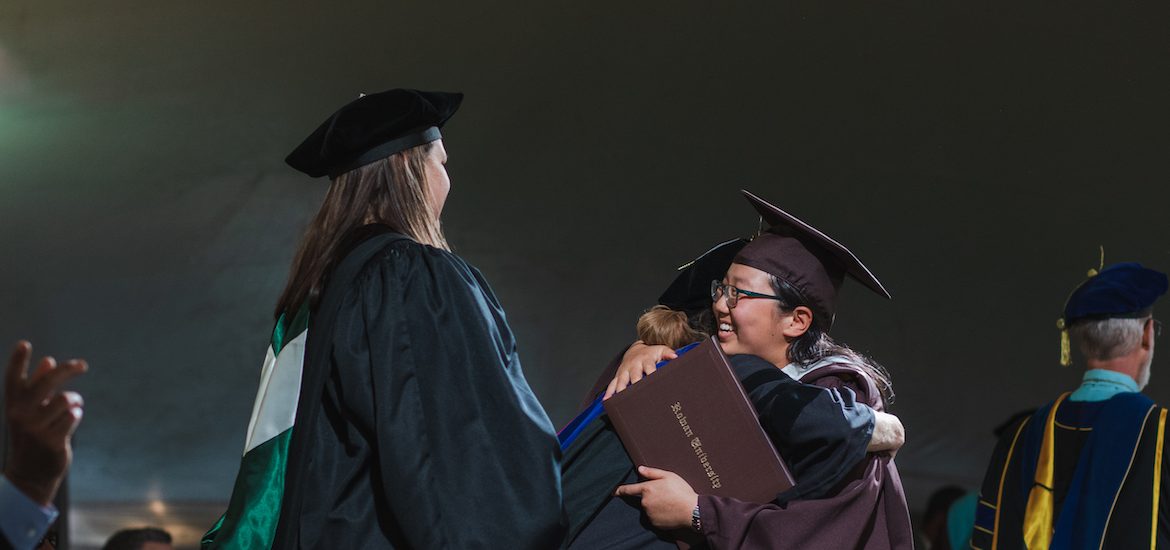
Rowan University Seniors Shed Insight On Their Professional Goals, Hopes & Dreams
A Path to Public Health: Health & Science Communication Major’s Journey and Professional Goals [VIDEO]

Exploring Health & Science Communication: Insights and Achievements from Sedrick Golden Meet Sedrick Golden, a senior health & science communication major and transfer student from Mays Landing, NJ (Atlantic County.) How will this degree support your dreams and goals? This degree will help support my dreams and goals because between my coursework, lived experiences, and […]
Exploring Global Horizons: One Rwandan’s Journey in International Studies & Globalization at Rowan University

Myrana sitting inside of the Rohrer College of Business
How College Students Can Break the Procrastination Cycle

Part of a series with Rowan University’s Wellness Center, this collaboration aims to educate students about personal well-being options. For further updates, follow @rowanuwellness on social. Written by Wellness Center intern Dabany Garris, psychology major with a concentration in child behavioral services What is Procrastination? Procrastination. Take a minute and think about some of the things […]
Rowan University Anthropology Majors Share Their Professional Goals

Anthropology is the scientific and humanistic approach understanding human origins, and biological and cultural diversity. Potential career paths can include becoming an anthropologist, archeologist, forensic science technician, curator, medical scientist, museum technician and conservator or geographer. What internships, clubs, networking, etc. are you involved in and how do they support your goals? “I am currently […]
How to Stop Being the “Problem Solver”
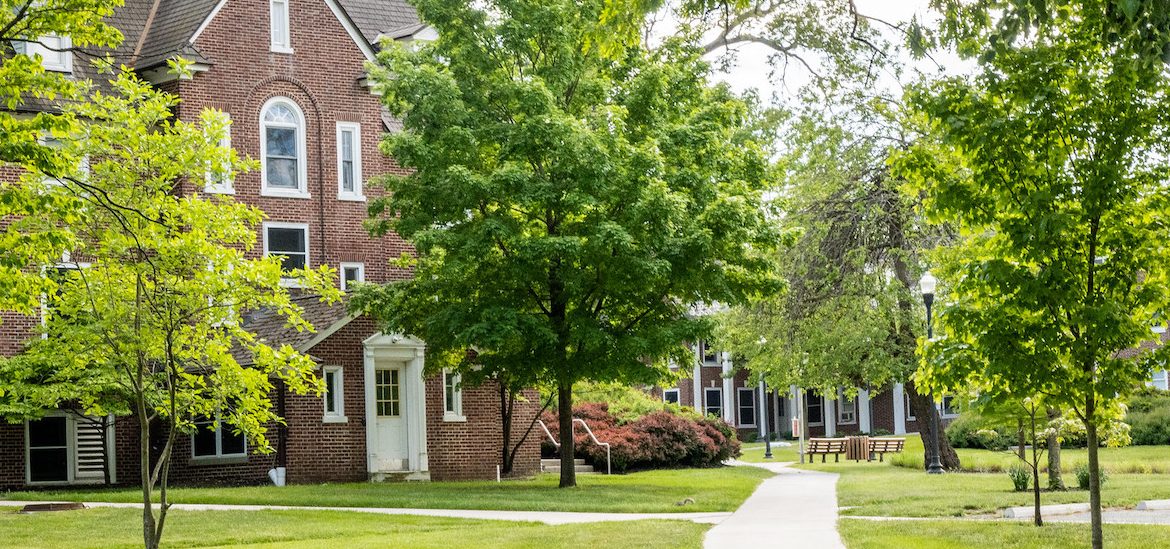
Part of a series with Rowan University’s Wellness Center, this collaboration aims to educate students about personal well-being options. For further updates, follow @rowanuwellness on social. Written by Wellness Center intern Kathleen Ramos, nutrition major As college students, we all have our own personal problems. It could be about that one professor that you find to […]
Inside Geo Information Systems with Jackie & Danielle

Geographical Information Systems (GIS) majors and graduating seniors, Danielle Miller and Jackie Ganter, give insight into what the GIS major entails and its impact. What is GIS? According to Danielle, “geographic information science, it’s the analysis of data sets, the creation of maps, and other imagery.” She went on to give her point of view […]
Normalizing Staying In As a College Student

Embracing the Art of Homebound Bliss at Rowan University Part of a series with Rowan University’s Wellness Center, this collaboration aims to educate students about personal well-being options. For further updates, follow @rowanuwellness on social. Written by Wellness Center Jocelyn Reuben, athletic training major Rhythmic Japanese plays in the background, the lights are dim, my scarf […]
Practical Strategies for Effective Time Management in College

Part of a series with Rowan University’s Wellness Center, this collaboration aims to educate students about personal well-being options. For further updates, follow @rowanuwellness on social. Written by Wellness Center intern Jean Corcione, a graduate student in our school psychology program Why Time Management is Crucial In College The idea of time management is something that […]
Indian Graduate Reflects on His Rowan University Journey

This story is one within a multi-part series highlighting the aspirations, hopes and dreams of a few of Rowan University’s international students. Read the other stories. What is your long-term professional goal or dream career? “My long-term professional goal is to become an expert in cloud architecture and full stack development. I aspire to architect […]
Climate Anxiety: What It Is, and Why It Matters

Understanding Eco-Anxiety: Impact on Mental Health & Coping Strategies Part of a series with Rowan University’s Wellness Center, this collaboration aims to educate students about personal well-being options. For further updates, follow @rowanuwellness on social. Written by Wellness Center intern Kayden Heinz, Writing Arts major Climate change has begun to affect people within our communities in […]
Unlock Career Success with Rowan’s RIPPAC

RIPPAC’s Growth Under Dr. Dworkin Events and Opportunities For Students The Importance of Internships and Getting Involved
Political Science Grow Research & Internships

Like most political science majors, Professor Lawrence Markowitz was originally set on entering law school after he had completed his undergraduate degree. However, after a brief internship in law that exposed him to what big law was like, some time off and a tour of Western Europe exposed him to the alluring complexities of international relations. He has since then become an expert on and published work on a variety of topics from political violence to state building with a focus on post-Soviet Eurasia and is the current chair of the political science department at Rowan University.
Transitioning from one field of study to another presented new opportunities to learn not only in the classroom but by working as well, “I interned for human rights on international affairs, then decided that I wanted to go into the field, but knew I needed a little bit more of a regional focus and a little bit more language skills.” The 1990s changed the landscape of international politics as the Soviet Union fell, providing Professor Markowitz with an opportunity that most people for close to 70 years only could dream about. As he waited to see which university would be his home for his master’s degree, he says, “While my applications were being reviewed, the year before I started my master’s, I went overseas to Moscow and did a study abroad language study for about five months in Moscow.” Even after starting his master’s degree in the fall of 1995, trips to Armenia, Ukraine, Uzbekistan, and Russia again all helped add to his depth of knowledge–something that can be seen and heard when sitting in his class.

What Professor Markowitz does for students extends outside the classroom setting, helping to guide students through their academic career. The vision he has for his department has been carefully put together to maximize the potential of students, “In political science, the faculty spends a good amount of time talking about and thinking about putting together a curriculum that builds multiple skills and helps broaden students in a variety of ways. Obviously on the most superficial level, we want you to cover the basic topics, themes, and theories and to know the material in political science. That’s the obvious. Underlying that, we’re developing a lot of the skills and less tangible abilities that will serve you over the long term.” The benefits of the skills you learn exceed being able to think more analytically or write better, “For example, how to impose and support an argument through compelling logic and evidence. If you go into law, that is obviously relevant, but in any field you’re going to be able to do that. You want to ask for a raise? That’s a good tool to have–the ability to craft an argument and to think through how to support it.”
Even when diving into the specifics of what you learn, Professor Markowitz ensures that students leave class with a better understanding of the world around them. The experiences he’s had in his own studies, research, and travels are all passed onto the students to provide a well-rounded approach to the topics covered in class. Helping students craft well thought out opinions on the world comes from taking a look at the world around them and analyzing the pros and cons in the differences, “If you just look at your experience in the U.S. and you look at the U.S. and try to interpret the U.S. American politics and the world around you and the economy, without having that broader perspective, you only have a limited view. In comparative politics and in the Russian politics class I teach we talk about themes, such as in the comparative politics class I teach, one day we do welfare states, we look at social programs, we look at Germany’s pensions and version of social security and its health care.” As much as Professor Markowitz seeks to help develop his students ability to learn and think critically outside the classroom, opportunities outside the classroom are equally as important.

While many students think primarily of internships, there are other opportunities that are available to students as well. Research opportunities are also available to students, an opportunity that helps a student branch out, “Students in their undergrad years, if they can work with a professor on a research paper project or conduct research for their classes, that is a big opportunity and advantage. In other words, they’re working on a paper and have a wide range of themes, but develop over time where your interests are.” Traditional internships are always available to students. The benefits to those are clear, “But also: not just research, but doing work within organizations or on campaigns, getting involved in various ways in politics; there’s a lot of opportunities for that.” There was also an emphasis on how lucky students are to have three major cities (New York, Washington DC, and Philadelphia) all within relative proximity to campus for tangible hands-on experience. Opportunities are boundless to those who look for them, with the staff helping students find positions for them to not only grow in, but find success as well. With both the Rowan Institute for Public Policy and Citizenship (RIPPAC) offering internship opportunities and the College of Humanities & Social Sciences offering a wide variety of internships, the possibilities available are varied. Rowan’s study abroad program also adds a layer of depth to the chances that students can create for themselves by immersing themselves in the cultures they’ve spent time studying in the classroom.
As much as Professor Markowtiz sees opportunities for students’ growth within their own fields of study, he also believes that students should expand their horizons by taking classes outside of what their area of focus is. Undergraduate studies provide students with the opportunities to explore a variety of interests, “First of all, even before selecting, but also after selecting a major, they should take a wide range of classes and explore. We’re one of the few countries on the planet, historically one of the few countries where you have a liberal arts education and you can take a range of classes and just take something in art or biology just because you want to learn about biology.” But when picking classes, students should not just choose randomly, but pick based on how it could relate to future careers, “If they go into law, then political science is a good major, but then the question is, ‘What kind of law might they be interested in?’ They don’t have to decide for sure, but if they are randomly thinking they might want to go into corporate law, then doing a minor or CUGS (Certificates in Undergraduate Studies) in something in finance or business makes sense. If they want to go into family law, then maybe doing a minor in psychology makes sense.” Finding a balance to broadening your horizons and narrowing down what a student is key to academic success.

Rowan’s political science department gives students the tools they need to succeed through lessons taught in the classroom, to the doors that lead to the professional world. When asked about what makes this university produce graduates who are so competitive, Professor Markowitz was quick to give credit to his colleagues, “We have a lot of faculty, especially in our College of Humanities & Social Sciences, who research within these fields. Most of them are at the high levels in their particular sub-field; they’re specialized. They are experts and they’re among the top experts in the broader fields that they’re in.” The staff aims not just to research for their own benefit, but to also help students stay on the cutting edge of information, to help them stay competitive in their fields of study. Professor Markowitz is not wrong when he says, “They’re not someone who is never interacting with undergrads and they don’t know how to talk about their research topic in everyday terms. We have that great mix, we have a dozen people or so in every discipline that have that kind of specialization and expertise. For the price tag, it’s a pretty good deal.”
Like what you see?
Story by:
Thomas Ubelhoer, sophomore political science and international studies double major
Q&A With a Senior Public Health and Wellness Major & Rowan Choice Student

Public Health & Wellness Major Discusses Her Passion for Public Health & Wellness, her internship and professional goals Senior Theresa Bennett, from Trenton, NJ (Mercer County) joined Rowan through the Rowan Choice program, a partnership with community college RCSJ that allows students to live on Rowan University’s campus while taking 24-30 community college credits, which […]
Career Options for Public Relations Majors

Rowan PR chair, student and alumni shed light on ‘what can you do with a public relations degree?’ Rowan Blog contributor and senior public relations major, Natalie DePersia, shares a first-person perspective on potential career opportunities within the public relations industry. After interviewing several individuals, from peers to professors to professionals, she delves into the […]
Behind the Lens: Our Favorite Summer Shots

We’re lonely in the summer without you, Profs. Welcome home! Here are our photographers’ and videographers’ favorite shots, stories and moments from this summer:









Like what you see?
Finishing His College Career Strong With a Summer BioChem Class

Today, we meet Jonathan Philip, a senior biological sciences major from Williamstown, NJ (Gloucester County), here to talk about his experience with taking summer classes at Rowan and how it’s been beneficial to him. Jonathan enrolled in Intro to Biochemistry this summer at Rowan. As it relates to his experiences in the class, Jonathan […]
- Business
- ...
Intern at Campbell’s Soup Company

A glimpse into hands-on learning for a finance and management information systems major Landon Nicholson, a senior double major in management information systems and finance from Mullica Hill, NJ (Gloucester County), gives some insight into his experience taking summer classes at Rowan and his summer internship at Campbell’s Soup Company. Landon wrapped up two online […]
Q&A With Master in Teaching Graduate Student On Her Studies & Student Teaching

Today we feature Master in Teaching graduate student Madelyn Olszewski from Washington Township, NJ (Gloucester County) who recently completed her studies. Madelyn pursued her master’s degree immediately following her undergraduate studies. What’s been the defining points of your academic career here, anything at all that stands out to you in particular? Well, my academics, like […]
Sports Comm Major’s Path to the Big Leagues

Coby O’Brien, a sports communication and media major from Toms River, NJ (Ocean County) who will graduate this fall, details his incredible experience as a social media coordinator for Major League Baseball.
As a sports communication and media major (Called sports CAM), Coby hones interests that span the fields of radio, television, and film (RTF) production, public relations, and advertising. Currently, he works at Major League Baseball (MLB) as a social media coordinator. Describing his day-to-day work experience, Coby says, “What we do is scour the internet and try to create graphics or videos to hype up games, and intrigue people to learn about the players more. It’s a lot of player promotion, but the core of what we do in the social editorial department is watching baseball games and posting highlights.”
In his short time being there, only a few months, he already is very happy and proud of his work. “My proudest accomplishment was I had a couple posts go viral. My first one was a post at the end of spring training, I got over 500,000 likes on that one.”
Coby’s path to success had started at a different school, in a different program. “I still can’t believe it when I think about it. But freshman year, I was like, I’m going to be a doctor of physical therapy. Then I realized I can’t do math. So I was like, I’m going to write about sports. I want to be a broadcaster. And the school I transferred from didn’t have that stuff. So, at the start of my junior year I transferred to Rowan and joined our sports CAM program.” As a transfer student, Coby had to adjust to a new school and a new environment. However, he was able to quickly make friends, join clubs, and make the important connections he needed to be able to advance his career.
Like plenty of successful Profs, Coby attributes just about all of his success and his opportunities to Rowan and the options that the curriculum offered. Additionally, he gives some insight on just how deeply the Rowan connection runs: “Everything I have is because of Rowan. I can’t really say it any other way. Like of course I did the work, but none of my opportunities would even be close to what I have now without them, it feels like I’d have no chance in my career if it wasn’t for Rowan. My first boss at my first internship was a Rowan grad. My second internship was with Rowan Athletics. My third was through Rowan because Rowan has a partnership with Delaware Bluecoats or the G-league team, the Sixers, and now my boss is a Rowan grad as well. So every step along the way, I was lucky to have Rowan.” This, Coby says, is important to remember when getting involved. You never know when a fellow Prof can help you out in the future, so making connections, as Coby did, is of the utmost importance.
In closing, Coby has a very simple piece of advice for any new Profs coming in who are just starting their Rowan experience and looking to branch out: “Get involved. And then once you have the experience on campus, apply everywhere. For an internship, no place is too small for you. And no place is too big for you. Apply everywhere.”
Like what you see?
Story by Connor Bicknell, senior communication studies major
Sleep Hygiene for Student Health

Part of a series with Rowan University’s Wellness Center, this collaboration aims to educate students about personal well-being options. For further updates, follow @rowanuwellness on social. Written by Wellness Center intern Jean Coricone, an MA in School Psychology program graduate student Being on a college campus, it is common to see classmates and friends struggling to […]
How Autism PATH Program & College Compass Supported One Student’s Transition to College

Leader in Supporting Students With Autism, Rowan University Offers Free Program Many Universities Do Not Have [Editor review and edit November 15, 2024.] We amplify all student voices, all year-round. To be featured, please contact rowanblog [at] rowan.edu. Today we feature Julie Gerber (she/her), a rising junior computer science major from Morris County, NJ. Julie […]
Rowan Helped Kit Lillia Embrace Their Identity

Can you describe your involvement on campus? “I am the president and founder of a new club on campus called Stop Gender-Based Violence. I am also an active member of Prism, Rowan Progressives, Active Minds, and I just signed up to be a member of Habitat for Humanity. I also just got an internship through […]
From Student to Political Operative

Originally intent on a completely different major, that changed after Connor attended Dr. Lawrence Markowitz’s talk on Russian collusion in American elections. Although he quickly changed majors to political science, he did not want to lose other areas of interest that had been a big part of his life growing up, causing him to pick […]
Caffeine Consumption in College Students

This article is part of a running series with Rowan University’s Wellness Center This collaboration aims to educate students about personal well-being options. For further updates, follow @RowanUWellness on Twitter, Instagram or Facebook.
Caffeine seems to have become an inseparable part of being a college student. The most common ways to consume it are through coffee, tea, soft drinks, energy drinks, and, yes, even chocolate. Whether students consume it for the mental boost, taste, or to enjoy the social aspects, it seems to be the trendy thing to do. For all the joy and help caffeine provides to us, can it be hindering our performance and health?

From the moment we wake up, the chemical adenosine builds up in our brains and accumulates throughout our day. It is what makes us feel tired by inhibiting wakefulness and promoting the sleepiness areas of our brain. What caffeine does to our body is block the adenosine from binding to the adenosine receptors making our brain unable to recognize how long we’ve been awake. However, caffeine doesn’t make adenosine disappear, only sleep does which is the reason why some people experience caffeine crashes. Caffeine does not replace good sleep and its effects have been known to interfere with sleep quality and patterns. So what can we do to maximize the benefits and minimize the risk?
First, we need to understand our own bodies because everyone reacts to caffeine differently. If someone suffers from generalized anxiety or depression, caffeine may worsen the symptoms. Caffeine is a stimulant that increases the circulation of adrenaline in our body which increases our fight-or-flight response. Students may experience a more severe drop in mood once the effects wear off caused by caffeine withdrawal. For those individuals, it is recommended to find caffeine substitutes. Some ways to stay awake without caffeine include a quick 5-minute exercise, getting some sunlight, and staying hydrated with water. Dehydration can make us feel sluggish and aromatherapy is also an effective way to stay awake.

Otherwise, it is recommended to stop consuming caffeine 4-6 hours before bedtime to allow for better sleep. Medical researchers also suggest waiting one hour after waking up to consume anything caffeinated. That is because cortisol, also known as the alert hormone, is at one of its daily peaks of production within an hour of waking up. Consuming caffeine first thing in the morning lowers cortisol production, making us less alert throughout our day. By taking advantage of the cortisol produced in our body and delaying caffeine consumption, we can be more alert and lower the chances of experiencing caffeine crashes in the afternoon.
In fact, if the environment permits, it might be best to take a coffee nap. Our body needs time to absorb caffeine for it to take effect and depending on the beverage the effects can kick in between 10-30 minutes. Take a 20-30 minute nap immediately after consuming caffeine. Most people find this to be more effective than drinking caffeine or taking a power nap alone.
Like what you see?
Story by:
Suzie Tse, Higher education graduate student, Wellness Center intern
Edited by:
Lucas Taylor, English education graduate student
Reflecting On My Student Teaching Internship Experience

Known for its education programs, Rowan University student teacher shares his perspective In this first-person perspective piece, graduate student in Education, Lucas Taylor of Gloucester County, NJ, discusses the arduous trials of being a part of something bigger than higher education – being a part of a teaching internship. Throughout his experience as a student […]
Triple Major Making a Diff in Conservation

“It’s just like the normal workload. All three of my majors are in the same department, so the classes overlap quite a bit. They all kind of blend together in the way that we talk about, like how humans are affecting the planet and ways that we can solve that.” What got you into studying […]
Redefining Beauty: It’s Time to Normalize Body Image

This article is part of a running series with Rowan University’s Wellness Center. This collaboration aims to educate students about personal well-being options. For further updates, follow @RowanUWellness on Twitter, Instagram or Facebook.
Body image deals with how an individual perceives themselves, how they think about themselves as well as how to view themselves when looking directly at a mirror. Body image is not just a single aspect; it is various, especially with aspects such as height, weight, and skin color that hold weight in society. It’s crucial in the case of body image to have a positive understanding of the self as it creates a sense of ease in addition to promoting a positive outlook on a person’s mental and physical health. Having a negative body image is proven to have dangerous effects to the aforementioned features as it “can lead to a lower self-esteem which can affect some areas of a person’s life“ Body Image, 2022).

People can start building towards having healthier body image by practicing positive thoughts about themselves rather than thinking negative toward their body. A person will build confidence if they exhibit a healthier mentality towards their own specific body image. Body positivity is when individuals love their bodies regardless of shape, color, gender, size, and ability. Body neutrality doesn’t involve always loving your body but it is more about accepting it. For example, body positivity would be, “I love arms, scars and all, they are beautiful” while an example of body neutrality would be, “I love my arms because they help me write.”
Some tips to practice building body positivity!
- Think healthier, not skinnier
- Cut negative self-talk
- Positive affirmations
- Do not Compare Yourself to others
- Focus on the Things that you love about yourself
These tips will help a person think more positively about their body. If a person is having negative thoughts, then, they should practice these five healthy tips on boosting self confidence.
Like what you see?
Story by:
Riya Bhatt, junior biological sciences major, Wellness Center intern
Edited by:
Lucas Taylor, English education graduate student
Sources
Source: Body image. NEDC. (2022, July 19). Retrieved January 28, 2023, from https://nedc.com.au/eating-disorders/eating-disorders-explained/body-image/
Jade Kenny’s Internship Journey with Subaru

Why was Rowan right for you? Jade explains when she was applying to Rowan, her original path drew her to elementary education. For Jade, choosing Rowan was the best of both worlds since it allowed her to study what she believed to be her passion at the time while respecting her parents’ wishes for her […]
Why Self-Advocacy Matters in College (And How to Practice It)

Part of a series with Rowan University’s Wellness Center, this collaboration aims to educate students about personal well-being options. For further updates, follow @rowanuwellness on social. More times than not, whenever we’re experiencing a personal hardship of some kind we tend to retreat into our shells like a turtle and let the issue continue to persist […]
Overcoming Overthinking: Ways Students Can Cope

Part of a series with Rowan University’s Wellness Center, this collaboration aims to educate students about personal well-being options. For further updates, follow @rowanuwellness on social. Do you ever find yourself in a quiet setting trying to get some work done but there is just a little voice in your head saying a million things at […]
How to Build Healthy Friendships As a College Student
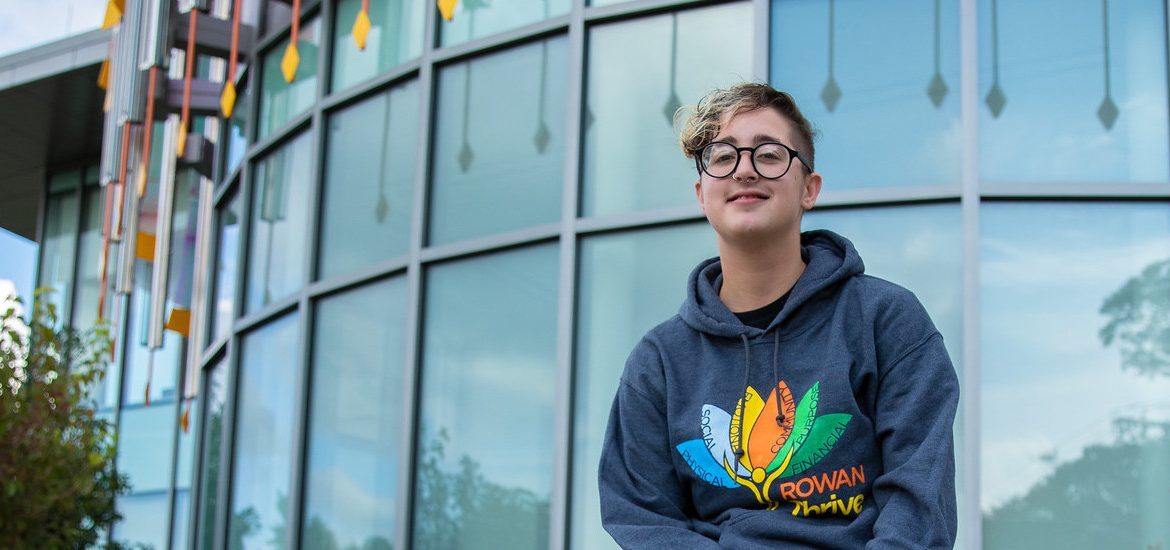
Part of a series with Rowan University’s Wellness Center, this collaboration aims to educate students about personal well-being options. For further updates, follow @rowanuwellness on social. Written by Wellness Center intern Kye Binik, law & justice studies major Friendships in adulthood can be difficult to navigate especially when it comes to recognizing a healthy friendship versus […]
Fadi Khan Talks About New Beginnings

Today we feature student leader Fadi Khan (he/him) of Pleasantville, NJ (Atlantic County). Fadi is a senior Biological Sciences major and lives on campus in Holly Pointe Commons, where he is also a Community Assistant. A first-generation college student, Fadi shares with us his perspectives on life, his major, and getting the most out of […]
Benjamin Busler: Rowan Engineering Major Interns at NASA

Electrical and Computer Engineering major Benjamin Busler is representing Rowan University this semester as a Pathways Intern with NASA’s Goddard Space Flight Center in Maryland. Benjamin, a junior from Somerset County, is among a select group of students nationwide in NASA’s Pathways program, which offers internships and a direct avenue to future employment with the […]
Q&A With a Health & Science Communication Major

Sedrick Golden is a junior student here at Rowan University originally from Pleasantville, NJ (Atlantic County). Sedrick is a Health and Science Communication major with a minor in Public Health & Wellness. Sedrick is breaking down barriers as a first-generation college student commuting to Rowan after transferring from Atlantic Cape Community College. On campus, he […]
Ricardo Oropeza’s Rise From 2019 Graduate to Sony Music Analyst
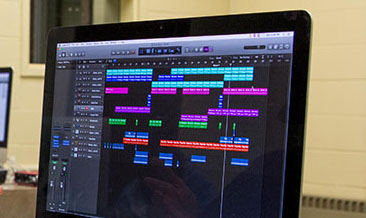
Why did Rowan stand out for you and your college search? Rowan stood out to me for a few main reasons. The first way was through word of mouth. In my high school in Randolph and my graduating class, we had six people attending Rowan. As someone with no family members who have been through […]
From Class to Cape Resorts: Alivia’s Internship

Today we feature senior Alivia DiNorscio (she/her) from Bridgewater, NJ (Somerset County). Alivia is an on-campus resident and first-generation college student majoring in Supply Chain and Logistics, having transferred to Rowan University from Raritan Valley Community College. She discusses the major with us here along with the internship she recently completed with Cape Resorts in […]
Mental Health In Your First Year of College

Part of a series with Rowan University’s Wellness Center, this collaboration aims to educate students about personal well-being options. For further updates, follow @rowanuwellness on social. Written by Wellness Center intern Summer Slusarski, psychological sciences major The first year of college is both exciting and terrifying. You are moving away from home, gaining a sense of […]
Gaining an Edge in the Business as a Music Industry Major: Alyssa McAvoy’s Story

Junior student Alyssa McAvoy shares how she’s making the most of being a Prof
Benefits of Being a Pet Owner

This article is part of a running series with Rowan University’s Wellness Center. This collaboration aims to educate students about personal well-being options. For further updates, follow @RowanUWellness on Twitter, Instagram or Facebook. Owning a pet comes with joy that radiates through the owner’s body when they come home to see them waiting at the door. The love […]
How to Prioritize Your Wellness As a College Student

Part of a series with Rowan University’s Wellness Center, this collaboration aims to educate students about personal well-being options. For further updates, follow @rowanuwellness on social. Written by Wellness Center intern Riya Bhatt, biological sciences major One of the biggest challenges as a college student is the workload of assignments, exams and other extracurricular involvements. Many […]
Alumni Success: Joseph Albanese and Where Computer Science Can Take You

Joseph Albanese of Gloucester County, NJ is a 2021 Rowan University alumnus who majored in Computer Science. Joseph works for the company Freefly Systems as a software engineer for the organization’s Alta X drone technology. Whether that be through dealing with maintenance on the front and backend of coding on drones, Joseph Albanese is a diligent worker and proud graduate of the Rowan College of Science and Mathematics.
What is computer science?
Computer science is the study of computers and software. Rowan’s program particularly focuses on the software end of things. There’s a lot of different subcategories that you can get into within the major such as artificial intelligence and robotics, which also has a focus on low level code running on boards. You could also get into applications programming where you’re running codes on applications that you use everyday such as social media.
There are a lot of other categories within this encompassing field that all relate to computers and the software that runs them.

What are the different avenues like within the field?
Computer science is used in just about everything you can think of now. For instance, your car has a small computer that controls the electronics like the air-to-fuel ratio and a ton of other little things that you don’t even think about in your day-to-day life. Your phone runs an entire operating system that has computer programs running on it. You can go into fields like robotics or drones where you’re focusing on those low-level bits and manage flight dynamics.
You could also go into more high-level things such as writing the software that you use to interact with other pieces of software or devices. You could go into cloud programming or web development where you develop a net of servers and develop all of the different actions that the servers are performing. There’s a huge breadth of things that you can do with computer science in general.
What are some positions that you can find in computer science?
You can be an embedded software engineer where you’re specifically focusing on the development of software that runs on boards. You can think about dominos, where you’re taking these pins that have input and output signals and you have to do an operation in between. You take the input and do some form of an operation between sending out outputs.
With robotics there’s a huge application for that. You can work in an automotive field, you can work with developing cameras that even you guys [editor’s note: our camera crew] are using right now. You could also be a web developer, which has two different subsections with the frontend and backend of things.
For the frontend of things, you can work on the user interface and how buttons appear on the screen and how the user is going to interact and act with that sort of thing. On the backend, you’re managing how data is transmitted from a user, how it’s stored, as well as the operations that you perform on it. There’s a lot of different avenues that you can go about doing.
A lot of what I did at Rowan was lower level application development. I focused quite a bit on writing Linux applications at Rowan University like what was in my capstone classes. Our senior project had us contracted by ASRC to build an application that they were going to use.

What was the coolest application that you developed at Rowan?
The two coolest things that I did at Rowan were that ASRC project where we wrote a messaging system to send text messages back and forth between servers. The coolest thing about that was that it was decentralized. There was no central server keeping track of the messages, the messages would go directly from one computer to another computer and only to the user that was supposed to be receiving it. If any of the other computers had gone down you could still communicate with all the other ones. If you brought it back up it would automatically be joined back up into the network and communicate again.
Another cool project that I did at Rowan was building a Spotify recommendation website. If you connect to the website or link your own Spotify account with our website it would give you the option to like songs. The website would then take all of the different characteristics of the songs that you had selected such as the keys, the speed of the song, the different notes that would play, and it would compile all that together to craft a playlist for the specific user.
What do you enjoy the most about the field?
There’s a huge variety in what you can do. There’s a lot of interesting jobs that you can get in computer science but I would say that the thing that I like the most about computer science and engineering in general is getting problems and solving them. I get a lot of satisfaction from it. When I get a problem that I have no idea how to approach, getting to know about it and cracking the code and figuring out what I need to do is fun.

What is Freefly Systems?
Freefly Systems is a company that started out doing cinema drones and other robotics. We build cameras, but I primarily focus on the Alta X, which is our large heavy lift drone that is used in many different movies. We’re also getting into the industrial space with land surveying. We’re also looking into breaking into drone delivery. We sell this drone to different companies that are already doing really cool things with their own equipment or provide different services for them.
Generally, Freefly develops drones, cameras and gimbals. Companies that specialize in filming these triple A movies would look into our company and our Alta X to put their camera and equipment together. They use our platform to carry out their tasks. There’s so many different types of markets with drones. There are people who want small drones for shows, but generally for our type of customer, payload and weight capacity is one of our highest concerns. The openness of the platform and the ability to integrate whatever you want with it allows you to take care of whatever you need at the highest level.
What are your responsibilities like at Freefly?
I am a software engineer for the Alta X Team here. Generally, I take care of multiple different tasks ranging from the programming of the boards inside the drones to managing how the different boards communicate with one another as well as writing scripts to do qualitative insurance. I’ve done some work with changing some of the different codes that provide the front end to control the drone.
There’s a whole wide range of tasks that I do as a software engineer. Rowan University definitely provided me with a lot of basic tools that I now need to understand general programming concepts and how to write quality code. From there I was able to leverage those skills and learn how to apply it to drone technology.

Are there any opportunities for Rowan students and alumni at Freefly?
Here at Freefly we’re constantly looking for new talent. If you’re an alumni or just recently graduated, you should definitely apply as we’re always looking for new software engineers. If you’re a current student, we’d love to have you as an intern and show you the ropes of what drone software engineering is like.
What is the best piece of advice that every computer science student should live by?
I would say that the best thing that I had heard when I was in school was to not just focus on your course work and making it the only thing that you’re doing. If you have side projects and things that you’re working outside of what you’re being taught, not only does it reinforce things that you’re learning but it also shows that you’re passionate about what you’re doing while applying for jobs. It gives you a leg up in experience but also having something to show what you’re doing.
If you apply what you learn outside of the academic environment and take it one step further, you start to push the boundaries of what you learn in class. You’ll have a much easier time transitioning into an actual workplace. While school provides a great foundation and a bit of depth to things, going outside and like I said earlier, pushing it that one step further, will really help you get a leg up on things.
See our video with Joseph here:
Like what you see?
Story produced by:
Lucas Taylor, English education graduate student
Managing Stress as a College Student

This article is part of a running series with Rowan University’s Wellness Center. This collaboration aims to educate students about personal well-being options. For further updates, follow @RowanUWellness on Twitter, Instagram or Facebook. College is a tumultuous period of transition. Many students go from living at home with their parents to the newfound freedom of living alone. […]
How Nature Can Improve Your Mental Health

This article is part of a running series with Rowan University’s Wellness Center. This collaboration aims to educate students about personal well-being options. For further updates, follow @rowanuwellness on social. Written by Wellness Center intern Robert Zoroiwchak, psychology major In the bustling modern world, time is always short, and the never ending stress is always piling on. […]
Josh Echandia on Sales Internship at CobbleStone Software

Today we speak with Josh Echandia, a senior Marketing major from West Creek, NJ (Ocean County). Josh switched from an Education major to Marketing at the end of his sophomore year. Within the last semester, Josh worked as a Marketing Intern for CobbleStone Software, a contract management software company. He also works full-time as a sales representative for Best Buy. He discusses his decision to switch majors, his internship experience and how working in the field cultivated a love of marketing and sales.
Why did you choose Rowan to study Marketing?
I originally came to Rowan to be an Education major focusing on the Math Education route. That just ended up not working out for me because I did not really enjoy it. After about a year, I switched to Physical Education and then after another semester, I switched to Marketing. I had already been working at Best Buy for a couple years prior to going to Rowan, so I was already in the sales field a little bit; I thought marketing would be a good fit. I loved Rowan as a whole, so I didn’t really care what my major was. As long as I was still a student here, I knew I was going to be happy.
What are your future plans and what is your dream job for working as a marketing major?
After gaining some experience in the business field, I discovered that I really liked the sales aspect of things. Whether that is business-to-business or business-to-consumer sales, I would love to try at all. I’m really not set on one specific job title or position.
Marketing is a big part of sales. Within the field, you must be able to advertise what you’re selling and target what market you’re striving for. That all plays a massive role in the sales world. I know that I want to incorporate what I’ve learned in marketing and couple it with sales.

How did you seek out the internship opportunity for Cobblestone Software?
I went to networking events at Rowan. They were so cool. I loved talking to all the different companies there and learning about the various opportunities you could have. The first internship that I actually applied for was CobbleStone Software. They stood out to me because they were in the technology field. So I decided to apply, and it worked out well.
What did you learn from interning at CobbleStone Software? Can you talk about the pros and cons for working hybrid?
I’ve been working full-time on top of being a student since I got into college, but going from regular retail work to an internship was a change of pace. Working for CobbleStone Software made me slow down and think about applying what I’ve learned in class to what I’m doing in a real-life professional setting.
Being in a hybrid setting helped because when I started the internship, I was in the office three days a week, and on two of those days, I had class right after work. So I felt like I was always running from work to class. Once I adjusted to the hybrid setting, it made my life much easier because I could work from home comfortably. I already had a desktop setup, so it just worked out perfectly.
After transitioning to a hybrid schedule, I was able to get to class on time, and I was able to eat in between. I was truly able to structure my day around my work and school obligations.

What was your role at this internship, and what did you do on a daily basis?
As a sales and marketing intern, we were responsible for making pre-calls for our sales advisors. Essentially, we were calling to see if they were interested or open to the market for the software we provided, just contract management, sorting contracts and auto-billing contracts. We were trying to sell our service and our software to other companies.
It was very interesting. And there were a lot of companies that I never would’ve thought they were working with, like [a local grocery story chain], for example. So it was interesting to see how real-life applications work in these settings.
What were some of your biggest challenges that you faced as a Cobblestone Software?
CobbleStone Software was very helpful in the whole process of becoming an intern and going through my day-to-day. My biggest struggle was adjusting to an office setting rather than making in-person sales connections.
Because I’m very personable, I think one of my most significant assets includes communicating with people in person. So being over the phone was a little challenging to get used to. Beyond that, everything was easy to adapt to, and CobbleStone made it very easy to adjust. So I would say the biggest struggle for me was just the change of pace and change of setting.

What was your biggest takeaway from Cobblestone Software? What was the best thing you think you’ve learned that you will be able to utilize in your future endeavors?
This response is more general, but internships teach you what real-life business is about and whether you want to be in specific fields or not. Without being so broad, I realized that CobbleStone taught me about employee engagement and employee appreciation.
Our software is not an easy thing to learn. And it was tough for a lot of us when we first onboarded to pick it up. However, the leadership team and all the people above us made the transition much more manageable. And through that, they gave us a lot of employee appreciation and were extremely curious about taking feedback from us. They made it apparent that we were at the forefront of many of their decisions. It made me feel appreciated and heard.
Do you have any advice for sticking out during the application and interview process of applying for internships?
One thing that I never really paid attention to until I started my junior year was the resources that Rowan offers their students. Especially within the College of Business, there are so many resources for you to be successful, and the only way to get those resources to the full extent is to apply yourself to them. Make sure you attend networking events, even if it’s not a class requirement, because you may find your next potential boss. Networking is key.
You may find some of the best friends through these networking events, too. It is essential to take advantage of what the school is providing you. Not only is it making the most of your tuition cost, but it’s also making the most out of your experience. Being engaged with your professors and being involved with the clubs associated with your major are ways to make the most out of your college experience and prepare you for your future.

How has your experience working at Best Buy and being active at Rowan in various social and athletic clubs helped prepare you and develop your skills for your professional endeavors?
My experiences within Best Buy and the social and athletic clubs at Rowan all help me develop skills and qualities that will only benefit me in my professional life. For example, being the President of the Wrestling Club opened my eyes to being a leader in general. With Best Buy, I was in management; this gave me a little bit of retail management experience.
Being the president of a club kind of opens you up to many different things, like the structure of leadership, balancing tasks, and even time management. For example, I have to delegate to my e-board certain things that must be done within the club. Everything I have learned from my job at Best Buy and my experiences made available by Rowan can efficiently be utilized in my future.
Did you experience any unexpected parts associated with your major?
So I started to piece together many connections between education and marketing. It was kind of weird because when I went into marketing, I went in with a sales-person mindset. And for me, education was just another form of selling; instead of selling products and services, it is like you are selling information.
I didn’t know how much depth and development there was in marketing — targeting different markets and being able to adapt to various market changes like that. So I never really thought about it. And that was not only interesting for me to see, it [showed] how I wanted to learn through marketing and what I could do with it afterward.

What was your favorite part of your major so far?
Honestly, my favorite part was being able to learn and now utilize Canva. Canva is an application like an Instagram editor or a video editor, and it is pretty cool to make custom logos through. It’s pretty much a design portfolio that you can use online. And we were taught to use it for different projects and assignments and marketing principles, and it is a tool I have been using ever since I started learning about it. I utilize it for the Wrestling Club, my accounts and professionally.
Like what you see?
Story by:
Natalie DePersia, senior public relations major
Photos by:
Ashley Craven, junior radio/TV/film major
I’ll Be There For You

This article is part of a running series with Rowan University’s Wellness Center. This collaboration aims to educate students about personal well-being options. For further updates, follow @RowanUWellness on Twitter, Instagram or Facebook. When a friend comes to us with a problem or if they seem in distress, our first immediate thought might be to try and […]
Math Anxiety in College Students

This article is part of a running series with Rowan University’s Wellness Center. This collaboration aims to educate students about personal well-being options. For further updates, follow @RowanUWellness on Twitter, Instagram or Facebook. Math anxiety is an extremely common phenomenon experienced by college students and university students today. Symptoms of said phenomenon vary from person to person, […]
What the Writing Arts 4+1 Program Offers with Major Eric Uhorchuk

See our video with Eric here: Like what you see? LEARN MORE Story by:Natalie DePersia, senior public relations major
Learning Beyond Memorization: Use Your Senses

This article is part of a running series with Rowan University’s Wellness Center. This collaboration aims to educate students about personal well-being options. For further updates, follow @RowanUWellness on Twitter, Instagram or Facebook. Learning doesn’t have to be rote memorization of facts, theories and explanations. One way of improving learning while reducing stress is employing different learning […]
Getting to Know the Molecular & Cellular Biology Major with Lauren Staman

Lauren Staman, a senior Molecular & Cellular Biology major, speaks with us about the field, her experience conducting research at Rowan University, and tips for students looking into the major. Can you describe molecular and cellular biology? It’s basically a field of biology that’s very specialized yet interdisciplinary. It deals with the inner workings of […]
Life with a Hint of Compassion

This article is part of a running series with Rowan University’s Wellness Center. This collaboration aims to educate students about personal well-being options. For further updates, follow @RowanUWellness on Twitter, Instagram or Facebook. Having compassion with oneself goes hand in hand with being compassionate with others quite often. According to self-compassion researcher Kristen Neff, “With […]
Bio Major Gains Experience Through Internship
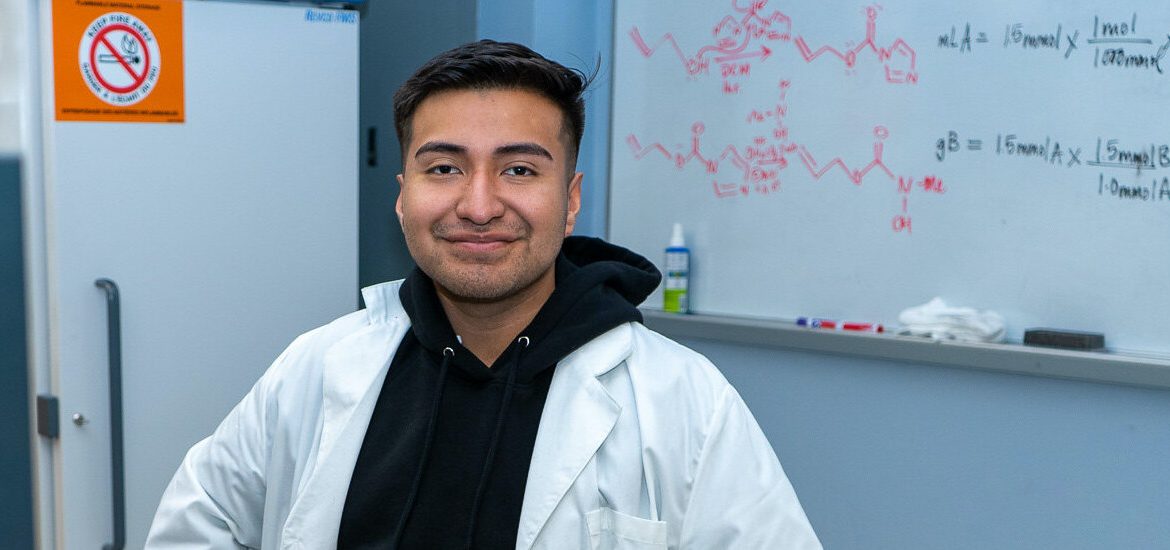
With this release of Beyond the Classroom, we discuss with Biological Sciences major, Daniel Cruz Garcia of Cumberland County, and learn more of his summer experience as an intern for the Cumberland County Health Department. In our dialogue with Daniel, we discussed with him some of the different responsibilities that he was given and how this has shaped his path for a future career in the health field.
What was it like finding your internship with Cumberland County Health Department?
I was about to graduate from Rowan College of South Jersey and I had landed this internship. I just heard about it in February and was really looking forward to going to the Office of Career Advancement and talking with them. I remember addressing them and saying “I’m about to get my associate degree, what career options do I have?” It’s a very difficult aspect of the college experience that I feel as if a lot of people don’t really get until you reach that point; what to do with your degree and what can you do. At the time, I didn’t really know intuitively what my options were, but I just saw the opportunity and I knew I wanted to explore the different options that were available to me.
Because of that, I was pointed in the direction of my internship and got to be in the environmental division. The Office of Career Advancement was extremely helpful in the way that they bridged the interaction between myself and the Health Department of Cumberland County.
After our first few conversations, the Cumberland Health Department kept in touch with me and they set up an interview. After all of that they called me back and said, “We’re gonna go with you since you’re interested.” I was really ecstatic.
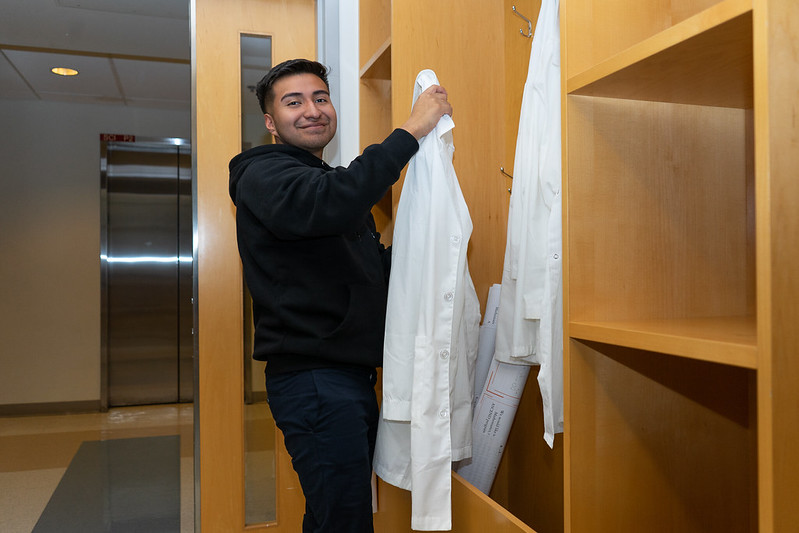
Did you know at all about the Cumberland County Health Department? Was there anything in particular that really stood out to you?
Back then, I was thinking about signs when I saw the job description. I’m in charge of monitoring and bathing beaches. My job consists of collecting samples from these beaches and then sending it to a lab to get tested to see if it is suitable for swimming. At the time I had thought it was really cool just to do some hands-on work out in the field. Going into my internship I had figured that it’d be a good experience to work in an office and go out into the field to work.
Another cool part about the internship was that I got to take those samples to a lab, I thought it was really cool and thoroughly enjoyed the process of it. This internship was a great opportunity for myself to see if environmental science was something that I had wanted to pursue.
The health department at Cumberland County has several different programs and different services they offer. At one sector of the health department they conduct multiple different clinics for covid, flu and even immunization. Especially for the beginning of the school year, kids need to get their vaccines all in order. During my time at the Cumberland Health Department I had conversations with some of the people from the nursing division. I was curious as to what their day-to-day operations were like and they had discussed with me some of the different roles that they all have such as healthcare as well.
My internship was incredibly diverse. I didn’t just get to see the environmental part of the department, I got to see the many different facets that go along with it. I didn’t think I would ever get to have an experience like this, but I’m forever grateful to be able to absorb so much knowledge and experience.
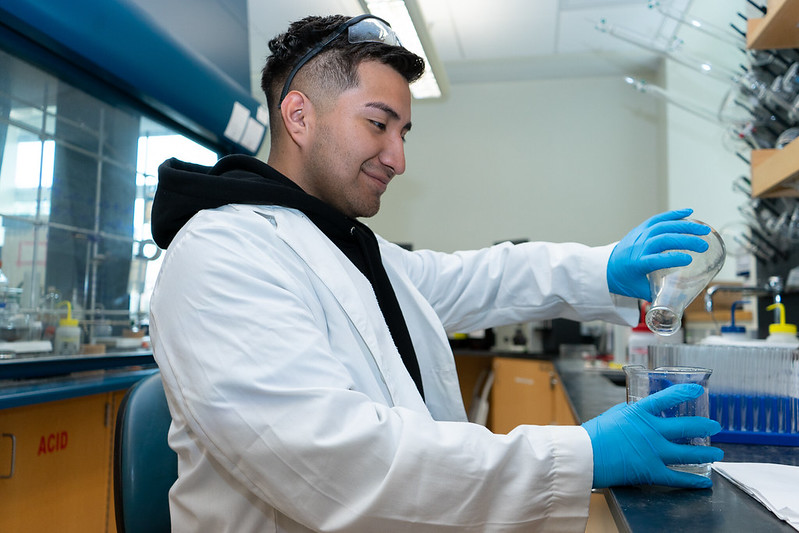
How has this internship affected your perspective on environmental science?
During my internship I had mainly dealt with the testing of bathing beaches but some of my other responsibilities consisted of investigating private walls. For example, let’s say hypothetically that somebody has a well on their property, our department would then go to that house and offer testing just to make sure that the private well under question is safe. With groundwater there’s always the chance of it being contaminated, whether that be through natural causes and leaks or even in some cases where someone maliciously pours something down it.
There are many different areas that the health department has thought of in order to reduce the chances of people getting sick from infected water. They’re very intricate in the way that they implement their plan and have thought of many different scenarios. For example, if someone were to pour something down a storm drain there is a chance for it to seep into the water that comes from the well.
As I mentioned before, testing fell under my responsibilities as well. I would travel to people’s houses and knock on their doors. I told them about our sampling program, and I offered them testing to investigate their private wells. I also got to be a part of the healthcare side of the department as well.
During my time with the health department I got to shadow some clinics for immunization for kids. I was caught thinking about both sides of the Cumberland County Health Department that I was involved with. I had thought that both sides had their pros and cons, but after a while I decided that healthcare was a better option. For the healthcare side of things, I had considered it to be very rewarding in its own way. They would directly help people. At these clinics you don’t need insurance, and they make it very affordable, but even if you do have insurance they also take it.
In my opinion just being able to help the public and uninsured patients is just really rewarding. During my time with them I had kept on thinking about how cool it was as a career and continued to feel more passionate about it.
What were the one-on-one conversations like when you were knocking on people’s doors and talking with them? What was that type of interaction like for you?
It was hard at first, I’m not going to lie. I remember the time when my supervisor had made me aware of the difficulty of the job. My boss had made it known to me that it was a hard job, but then also reassured me by telling me of how to make it easier. It takes practice, and practice is good for me especially by using my public speaking skills. It was hard because the residents weren’t expecting me to be there. I had to just knock on the door and let the resident know “Hey, I’m from the health department. We are investigating private wells in your area with our heavy sampling program. Would you be interested in checking on your property?” I tried to try to answer as many questions as I could but what I found out was that the more that I had gone up and knocked on the door to local residents, the better I was at communicating with them.
You find the system that works the best for you and create a format. For example, if a resident were to respond in a certain way to a particular question then I would already be thinking of a response that had worked before for someone that behaved in the same way.
Of course, people have different questions. As I went out to different houses there would be instances where somebody would ask me a question and I wouldn’t have the answer. It was those moments where I really felt myself grow and gain experience. I would often reflect on it and think “Ok, I’m gonna better prepare myself for the future in case somebody asks me the same question.” It was an ongoing learning process but right now, I feel really comfortable doing that right now. At first, it was just hard. Going out to people’s houses can be a very daunting task; going up to strangers and getting them to buy into what you’re doing and agree to be a part of your project.
But the work I’ve done I think is extremely important. Working and dealing with the public is great practice, especially if you’re thinking of going into healthcare like I am.
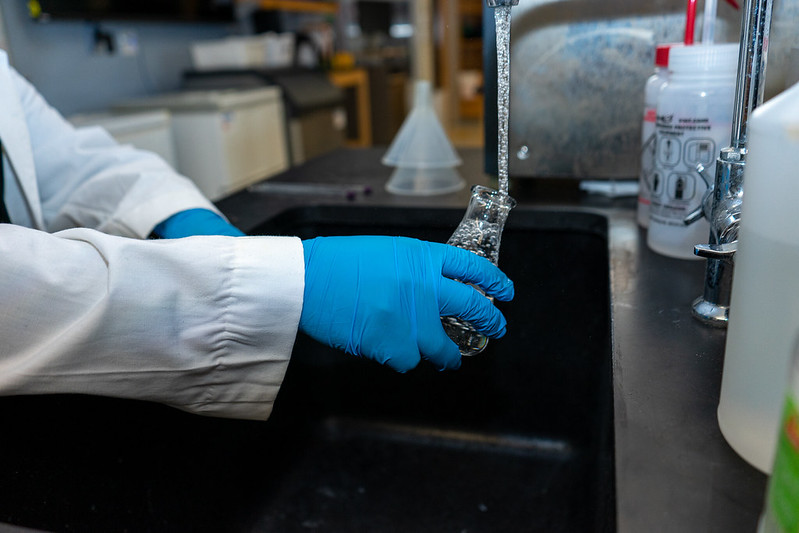
What was your main role with the internship?
As I mentioned earlier, we have six different lakes we monitor in the county. A normal day would be me coming into the office clocking and turning on my computer and checking my emails. Every Tuesday I go out into the field and I sample the lakes. We have county vehicles and I had my own to get to the different sites. Of course, It’s strictly for work purposes only. So I used that vehicle to go to the lakes to grab the samples. It’s very easy to get caught up with everything going on at the lake, I had always found it really cool afterwards to examine the small sample bottle. But there is a lot of groundwork that needs to be done afterwards. For example, I had to make sure to write down the time and location of where it was from and if there were any peculiarities with the scene.
Even with all that it really made my summer a lot more scenic, driving around and visiting all of these different lakes. One of the lakes that I visited was actually in my hometown so I was really familiar with it. But there were also plenty of times where if the Health Department hadn’t told me there was a lake in this specific area that I never would have known it existed. I was also in charge of monitoring and opening up the different lakes and beaches in the area. During Memorial Day Weekend, I tested and opened up the local lake. The lake went from being really empty to being filled with vibrant people within a week. It gave me a sense of pride in the fact that I did all of that.
So that was one of my one of my assignments. The other one was the private well test as I mentioned earlier. Whenever somebody buys a home there’s a real estate transaction. If the property has a private well, we require a mandatory testing just to make sure the private well is pristine and won’t cause complications for the new tenants. Everything is really thorough and keeps it all in check. Even in the case that somebody installs or repairs a well, we also require testing for that. In that process if we determine that a property fails or fails to meet standards, we would then go to nearby properties of the contaminated area to make them aware. Just as we do for knocking on people’s doors to see if they got their water tested, we do the same exact thing. We let nearby residents know that there is a contaminated property nearby that exceeds the maximum contamination level. We then follow up and inquire if they would like a water test completed and also let them know that it’s covered by our free water sampling program.
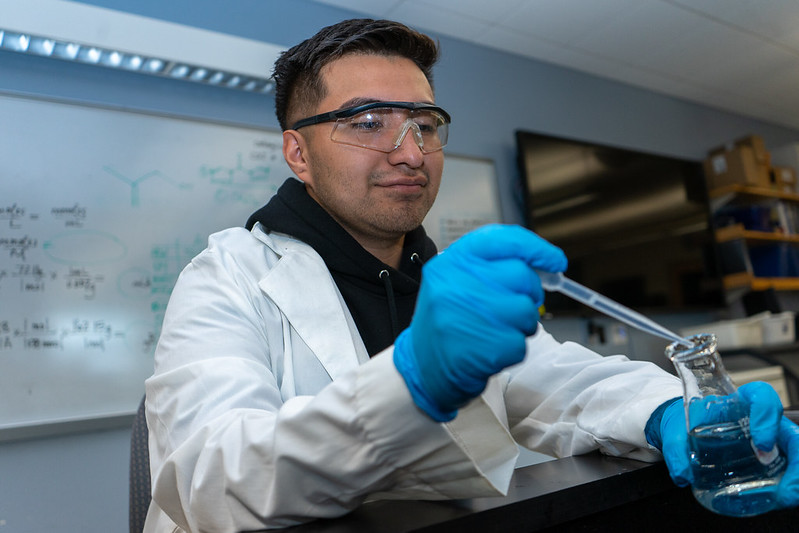
At the health department, we do a lot of work. We go to food places where we perform food inspections like for County Fair vendors. These vendors come in and sell their food and then we have to go there and perform a food inspection. Another popular place where we have to go is the local Little League because of their snack bar. We also perform inspections at tattoo shops. Tattoo shops need to be inspected by the health department just to make sure they’re using all the right materials and everything’s sanitary and then we can also oversee that process and make sure everything is in regulation. In one of my checks I was with one of my coworkers and when we were in this large development. The property was vast so the homeowners had hired landscapers to come in and do their yard work. With the health department we also have to check small businesses like this to make sure that the type of pesticides and chemicals that they are using is within regulation. We also have to check to make sure that these landscapers also have licenses to spray the pesticides just because of how dangerous it would be if anybody could spray a chemical into someone’s ground.
It’s public health so you deal a lot with the public. Like I previously stated, it’s great practice for developing speech and personable skills; there are plenty of instances where you might approach someone to routinely check their licenses or general wellness of the business and they will not expect to see you. You’ve just got to try your best. Try to explain everything from start to finish, because these people see you coming out of nowhere, and they’re like, “What the heck is going on? Who are you?” I did that a couple of times. For the majority the people are really nice and they give us all the information.
All of the intel that we obtained through our research is confidential, we don’t release it. It’s just for our records. A lot of these businesses and people have never had someone walk directly up to to them and ask them for these type of documents so it’s all about being personable and understanding in the situation.
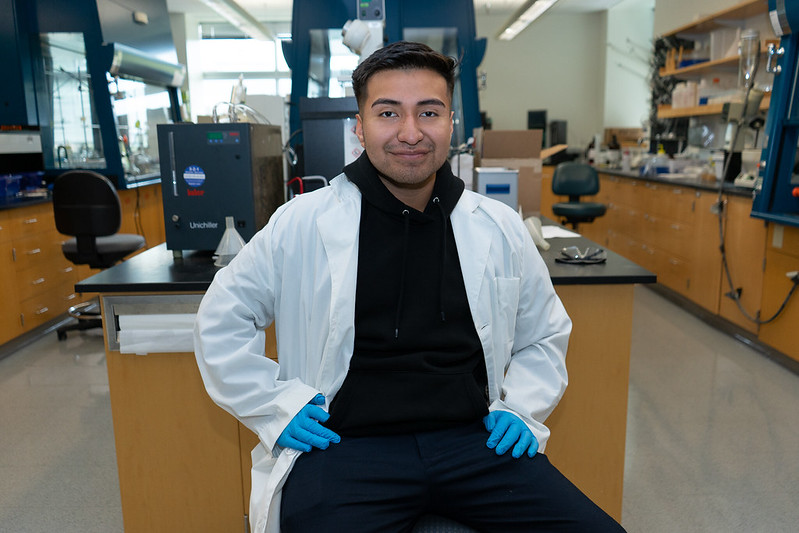
What was the most important thing that has stuck with you so far in regards to your summer internship?
Definitely the programs they have at the health department. So they have the environmental division, nursing division, health education and the special child health education program. The special child health education program deals with helping kids with disabilities. I think that was pretty progressive and something that I’m glad is incorporated into the department.
Overall, the main goal of the department is just to promote health around the community around Cumberland County, and I just think that’s awesome because I think it’s community service. In a way, you’re helping the people around your community. You have divisions that deal with the beaches and even go as far as special child health education. And it’s anything in between that. You have aspects like clinics and inspections that are all focused on helping the community. You really do feel like you’re trying to keep everybody safe. And I think that’s the overall take-home message of my internship.
How has your experience with your internship set you up for the future?
I think that it definitely has put me in a great position. I’ve talked to different trainers and workers within the health department that have given me some much needed guidance that I wouldn’t get anywhere else. It’s not often where you find an internship that actively sets you out into the field and deliver samples to labs. My internship has also got me prepared if I ever somehow get into an office job. I’ve never worked in an office before, but it was worth the experience.
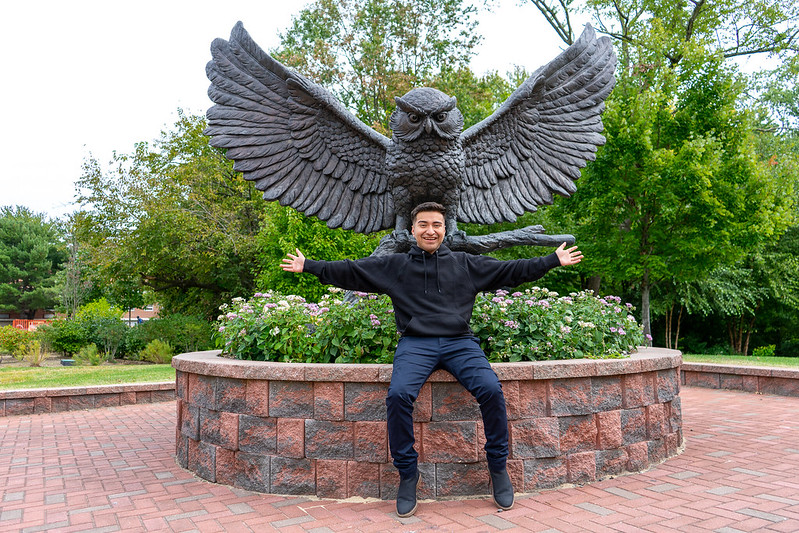
Like what you see?
Story by:
Lucas Taylor, Rowan Global student in Graduate English Education program
Photos by
Ashley Craven, junior sports and communication major
The Importance of Taking Wellness Days for Mental Health

This article is part of a running series with Rowan University’s Wellness Center. This collaboration aims to educate students about personal well-being options. For further updates, follow @RowanUWellness on Twitter, Instagram or Facebook. Spend time imagining that middle-of-the-semester rush. Rushing through campus to get from class to class. Upcoming homework repeatedly fills your mind while also keeping track […]
Dominic Whitener Uses Science to Empower People

Can you explain what Exercise Sciences is? Exercise Science is essentially looking at exercise from a more quantitative and qualitative background. So it’s more taking apart the exercise, looking at what happens in the body physiologically, anatomically, and really breaking down all of that to really get the most efficient form of exercise and apply […]
Stephanie Ciecierski Pursues M.A. in Writing and Internship with The Rug Truck

Stephanie Ciecierski (she/her) is a first-generation Rowan University 2016 graduate who majored in English and Subject-Matter Education. She was a transfer student from RCBC in 2013, and then commuted to Rowan from Medford, NJ (Burlington County). Now, after five years of being a high school special education teacher, Ciecierski is pursuing the second year of […]
Emerson Harman as Graphic Design Intern at Stantec

Today we spoke to Emerson Harman, a junior Biomedical Art and Visualization major with minors in Biology and Technical and Professional Writing, a concentration in Honors, and a certificate of undergraduate study (CUGS) in Paleo-Art and Visualization. They are an on-campus resident from Dodgeville, Wisconsin. Emerson tells us about their internship, how Rowan helped prepare them for the internship, and where they see themselves in a future career.

Tell me about your internship. What was your day-to-day like?
I interned for the summer at Stantec, an architecture, design, engineering, and environmental science design and consulting firm. The company is based in Canada. The company had 23,000 employees across 23 countries. I was the graphic design intern for the summer, and it was an 8-week program. I worked 40-hour weeks.
I worked on a few different projects both within the Philadelphia office and with interns from across North America. I worked on two projects with two elementary schools in Philadelphia that are getting renovated and added to. One has an existing mural through the MuralArts program of Philadelphia, and I made designs for the new main entrance and cafeteria based on their existing mural. That school is in the very initial design phase and once they get further in with the client, they will present my designs to the client as possible design options for the space. I made designs based on murals that already exist in the other school, as well. On the second to last day of my internship, the people working on this project with me presented my designs to that client, and they actually went forward with my designs, which is pretty exciting.
I did a few smaller graphic projects for different proposals for different projects that people were working on and the intern-wide project. There were 91 interns from across North America on ten teams this summer, and we got paired with an organization in North Carolina that is creating a farmstead summer camp for people with learning disabilities, particularly teens and adults with autism. Five teams worked on each half of the property. As the only graphic design intern, I helped create the presentations and the final booklets that were given to the client and created renderings and animations of the final architectural plans. At the end of the internship, all 10 groups presented our work both internally to the broader Stantec community, and to the client. Throughout this internship, we also had groups and seminars on a variety of topics just for the summer interns, including a counter transition from school to the workplace or innovative technologies and urban planning and climate change adaptation and how they structure sustainability into such a large global company.

Can you tell us a bit about Stantec as a company?
Stantec has many offices that work independently of each other, but sometimes they collaborate. They do architecture, so just like any other architecture firm, they do large and small-scale projects, and then they have design and interior design areas where they work on architectural projects and individual consulting-type projects.
The Philadelphia office where I work didn’t have any environmental scientists, but some offices have environmental scientists that worked with the construction crews or different building projects such as making sure that they’re not getting rid of habitat for endangered species, working near wastewater treatments, or doing anything damaging to the environment. There are many kinds of people working in one company. It’s an all-inclusive firm for these different areas.
How did you find and secure this internship?
I first applied for Stantec’s Equity and Diversity scholarship last year, without really knowing who Stantec was or what they did. I ended up receiving the scholarship, and from there, they invited me to interview for an internship position. Stantec gives about 22 scholarships and from there they select some interns for the summer. During the interview, I met with the Senior Vice President of Design and Innovation of Stantec, the Director of the Office of the CEO, and one of the Principal Architects of the Philadelphia office, who ended up being my supervisor. I received the internship offer, and after school was out, I moved to Philadelphia for the summer.

How does this internship tie in with your major?
My major isn’t directly correlated with the architecture and design industry, but I found that a lot of the skills transferred into this internship as a graphic design intern. I worked a lot in software like Adobe Illustrator, Photoshop, and InDesign, all design software that I use in my classes. Often having to learn new software in my major helped me with learning AutoDesk, Revit, and Enscape that I used a lot during and needed for the internship. Having an outside look at a lot of the design problems my supervisors gave me brought a unique perspective someone trained in architecture might not have.
Do you have any mentors at Rowan that helped you with this internship?
There are a lot of professors and faculty on campus that I definitely have close connections with, but the two that come to mind are initially Professor Amanda Almon, who is the head of the Biomedical Art and Visualization department, and Professor Jenny Drumgoole of the Photography department. I know I can go to them with questions I have. They’re helpful and supportive and help me with applications and just creating a professional profile for myself. When I’m applying for these opportunities, they can help me along the way. Professor Almon, and Professor Drumgoole, having people like them push you to develop your skills and encourage you to apply for internships, and find new opportunities that you might have otherwise missed is important. The most important thing you can do is to connect with those professors. They’re the start of your network, and from there they can help you with so much more.

How will this internship help you achieve your career goals?
I might apply for a master’s program in scientific illustration. Many people in this field wait and do their master’s after some years of experience in the workforce. Ideally, I want to work in infographic design and scientific illustration. I definitely lean more towards the natural science side, rather than the medical side of the biomedical art program, whether that’s working for a museum, a publishing company magazine, like National Geographic or Nature, or something along those lines.
Through this internship, I gained a ton of new connections, met a lot of amazing people, and learned a lot. I went from living in a small town in Wisconsin to living in Philadelphia, which was a very good experience, and significantly different. Now I know I can feel comfortable living anywhere. I also learned new programs and new techniques that I might not have learned if I hadn’t taken the internship. I also learned how to communicate and talk to new people on all levels.

Do you have any advice for Rowan students that are looking for internships?
I would first reach out to professors who work in the areas that interest you and see if they know of any campus or external internships they would recommend applying to. Beyond that, look up companies and organizations in your field and see if they advertise internships on their website. If not, it’s worth emailing them to ask! Make sure you have an up-to-date resumé, and just keep applying. It’s discouraging to be turned down, but the more you apply, the more chances you have of being selected.
Now that you have completed this internship, what’s next?
I just received an offer for a nine-month internship (the duration of the school year) with the U.S. Forest Service. I will create illustrations and graphic design for a visual field guide to endangered species and communications about old-growth forests. It’s through the Virtual Student Federal Service program, so it’s a virtual internship.
Like what you see?
Story by:
Rachel Rumsby, senior communication studies and public relations major
Internship Spotlight: Skyla Everwine’s Journey

Senior Rowan Blog contributor and Writing Arts and English major Skyla Everwine shares her experience working as a Grant Writing Intern for Project Little Warriors, a non-profit that practices yoga with kids in underfunded schools. As the spring semester was wrapping up, I decided that I wanted to find a summer internship closer related to […]
Hispanic Heritage Month #PROFspective: Senior Biological Sciences Major Esteban Nieto on a “New Community” at Rowan

Why did you decide to attend Rowan University? I wanted something different, something far from home. A new community, you know? Getting out of my comfort zone. What has your experience as a student been like? It’s been pretty good, honestly. Overall, I do enjoy it here. It’s very different. What attracted you to the […]
Student Leader Jack Campanella Joins Robotics Firm

Today we feature Jack Campanella, a senior Electrical and Computer Engineering major with a minor in Computer Science and a concentration in Honors. Jack is a lab assistant and peer tutor, and he also serves as president of Rowan’s Robotics and Automation Society (RAS). He hails from Monmouth County, NJ. Here, Jack shares more details […]
Beyond the Classroom: Marketing Major, Consulting Firm Intern and Rowan Social Media Student Team Member Zara Capone
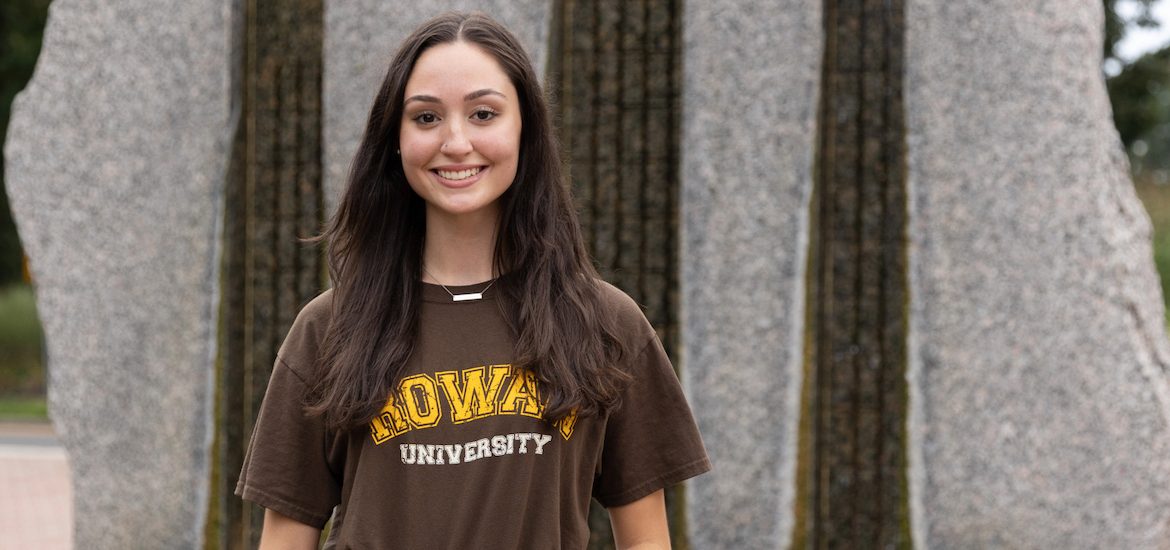
Today we speak to Zara Capone, a Marketing major from Flemington, NJ (Hunterdon County). Zara finds value in attaining hands-on experience as a Rowan social media team member and Slalom intern. In the following article, Zara shares experiences within her university studies, internships and advice for incoming marketing majors.
What is your major and what inspired you to pursue it?
I am a marketing major. I chose a business major because there are many opportunities for full-time jobs after college and you can use the degree in so many different industries. I chose marketing, specifically, because I enjoy the creative aspect of it.
What are your career goals?
As of now, my career goal is to land a job out of college and to continue to build my skills in marketing. I don’t know exactly what industry I want to work in, but I always thought that working in the media and entertainment industry has always seemed exciting to me.

How do you think Rowan has prepared you for achieving these career goals?
Rowan has prepared me well for my career goals. The Rohrer Center for Professional Development has a lot of resources that students can utilize to assist them through their job search such as resume reviews, career fairs, and mock interviews. Rowan also provides students the opportunity for on campus jobs in the field that they’re looking to get into, which is great.
Why did you choose to study at Rowan?
I chose Rowan because I thought that they had a great business program and I really liked the campus. They also have a lot of opportunities for professional development.
Are you involved in any clubs or organizations?
Yes, I am in Alpha Sigma Alpha, a sorority.
How did you get started on Rowan’s social media team? What are your responsibilities as an intern?
I was hired to be on the social media team in June of 2021. I saw a post on the Rowan University Instagram page saying that they were looking for student workers to join the team, so I applied and got the position. My responsibilities include monitoring Rowan’s social media platforms such as Facebook, Instagram, LinkedIn and Twitter. During these shifts, I respond to mentions, comments, and messages. I also create weekly content for Instagram, Twitter, Pinterest and TikTok.
Are you currently involved in any summer internships? If so, what is it and what are your responsibilities?
I am currently working for Slalom, which is a consulting company. I am working as a marketing intern. I work with the marketing team in the New York City office. Right now, I am developing a social media strategy for them and I’m also assisting in the preparation of partner events. The marketing team hosts a lot of events so I’m helping them create the materials that they need.

How are these experiences contributing to your development?
I am gaining a lot of hands-on experience, which is great. Also, having these experiences have allowed me to see what aspects of marketing I’m strong in and enjoy. I am also meeting a lot of new people and building connections, which is really important.
What do you believe is an important trait for those pursuing marketing? Do you have any advice for people who want to go into the field?
Marketing can be broad since there are many different skills that go into marketing. Finding skills that you enjoy or are good at can help you tremendously when figuring out what type of jobs you want. Gaining as much experience as possible throughout college gives you the opportunity to do that. Another piece of advice is making connections and building a network. Having a network is extremely important for people trying to get into the field and can open so many doors for you.
Like what you see?
Story by:
Jessica Nguyen, elementary education and literacy studies graduate
Photos courtesy of:
Zara Capone
Hispanic Heritage Month #PROFspective: Law and Justice Major Cisley Calva on Taking Pride in Her Path and Culture

Like what you see? LEARN MORE Story by:Natalie DePersia, senior public relations major Photos courtesy of: Cisley Calva
Larry Diehlman Writes for South Jersey Magazine

Meet Larry Diehlman, a senior Sports Communication and Media and Journalism double major with a German minor and Esports CUGS. Larry is a commuter student from Gloucester County, NJ and a columnist for The Whit campus newspaper. Here, Larry tells us about his summer internship with South Jersey Magazine and offers advice for future journalists.
How did you discover your internship?
I actually found it in an email from Professor Kathryn Quigley [chair of the Journalism Department]. She was sending all these emails about internships. I was looking through the emails, and I found the South Jersey Magazine internship. I saw the requirements, and I thought, “Ok, this could be good.” I feel like the work I do there is pretty good. I am so glad I got it.

What does your day-to-day look like at South Jersey Magazine?
It honestly depends on what the assistant editor of the magazine needs me to do. A lot of times I’m doing events and calendars. Sometimes I go online, and find events or whittle down articles or press releases she gives me, so we can put them in the magazine. Sometimes they’ll give me mini projects to do. Last week, she gave me an assignment. I had to go back and look at all the covers from 2016 to the present of one of our branches. For South Jersey Biz, I had a look back at the covers, and if they had a person or people on them, I had to write who it was and who they were for. We’re avoiding repeats so we can have fresh covers as much as we can. I know Dr. Houshmand was on there a few times. That’s the day-to-day. Projects, events, calendars and whatever they need me to do.
Have you learned anything new in this internship?
Yes. I’ve learned the power of editing, such as trimming down articles, what’s important in a story and what’s maybe not, at least for that excerpt. I’ve learned about using the power of research, looking up events, and seeing what’s relevant and what’s not.
I always work in a timely manner, and I always make sure I hit deadlines, but deadlines are always another great thing to practice. But I’ve learned a lot of good skills so far. I haven’t done too much of being given something to write about and going to write it. But I’ve been honing skills I’ve learned from journalism classes or The Whit. Those are what I’ve learned so far.

Has your experience helped you inside and outside of school?
I’m trying to learn things outside of the classroom. I got to a point where I feel I get it already in the classroom. I want to actually apply my knowledge to the outside world. With one semester left in college, I can finally take that next step into the real world, not worry about a book assignment due in a week. It feels so liberating to be outside of the classroom.
Why did you choose Rowan University?
Rowan was the first choice I had. It had the major I wanted. I knew some of my friends would be there. It was honestly close by. It was just everything I wanted, and the tuition wasn’t ridiculously expensive. If you go to other colleges, one semester over there might be the same price as two or three semesters at Rowan. All those factors were good. I got accepted to other schools, but I tossed the other two aside. I said, “I’m at Rowan.”
Why did you choose your Sports Communication and Media major, and then your Journalism major?
I’ve always wanted to do something in sports. I came into Rowan with a passion for broadcasting, but I guess over time, I realized maybe I didn’t have the broadcasting voice, so I pushed my way to the writing side. I know COVID took away certain opportunities, and there are only so many spots available, so I decided writing is more my strong suit.

Can you tell us about your column with The Whit?
I do a weekly NBA column called “Diehlman at Halftime.” I know it’s pretty popular on the site and in the column section. I talked about a variety of NBA teams, and I know that some of the other columns and articles that people do focus a lot on Philadelphia area sports, but I go through the whole rotation of the NBA. I praise some teams, and I mock teams. Sometimes I go a little harder on others, but I tried to throw some humor in there a lot. But I try to divide it into an introduction and then highlight low light and a random stat. It’s more my commentary, but I have statistics.
Did your work with this weekly column prepare you for your current internship?
Oh, yeah, definitely. We had to email the editor at South Jersey Magazine or wherever we were applying for a resume cover letter and writing samples. I think I had to submit either three or five. The samples I sent were from my columns. I noticed they were impressed. I think it definitely helped.
What are your future goals and career goals?
Before I started at Rowan, I said, “I want to be a sports broadcaster. I’m going to be the next Monday Night Football guy.” That dream plummeted, realizing that few people get that job, even those with the experience. Some people who actually played the sport don’t even get that job. I decided it would not work. I had to come to the writing side, and I’m like, “Well, I could cover a team, I could cover a league, the NFL and NBA are where I’m at.”
With The Whit, I have some NBA experience already. Now the traveling part, I don’t, but it will give me a starting point to show an employer I can turn things in on a weekly basis. I can also make fresh content, not just saying the same five things over again. That’s my ambition. But Neil Hartman has always told us, “You’re not going to get the ESPN job on day one.”

What is your advice for future students on internships?
I would say try to get involved as early as you can. There are some opportunities that you can’t get early on. For example, you had to be a sophomore to get this internship. So you might not get certain opportunities as a freshman, but in sophomore year and above, try to get as much experience as you can. If you’re getting emails about internships, don’t just delete them, actually open them and see what they’re about.
When you’re at the internships, just try to soak in as much as you can. Obviously, take nothing for granted. Be on time and do your work. Complain as little as you can. Just try to use everything you can, and maybe apply it back to the classroom. For example, if it’s a summer internship, I’ll take everything I’m learning right now. Then, I’ll go into the fall semester and say, “Okay, this is what I learned” and tie it in with what the professors teach us. Now, I’ll take that, and I’ll reapply it at my next opportunity. Then it’s just this one continuing cycle until you get a full-time job, and you’re working many hours a week. So definitely soak in as much knowledge as you can.
Final thoughts?
I guess it’s been a weird experience going through COVID during college and studying journalism. I was fortunate enough to graduate high school right before COVID, so my high school experience was untouched. In my second semester of college, COVID said, “Here is my time now,” so I had one real semester of college and then everything went south, having those two semesters that we’ll never get back in person. Now that we’ve made a comeback here on campus, it’s been an experience just learning to adapt to this major.
Journalism is certainly a major that was affected by COVID, especially with sports. But always learn how to adapt. No matter what major you’re in, and if you have to adapt and learn quickly, and also pace yourself as well.
Like what you see?
Edited by:
Rachel Rumsby, senior communication studies and public relations major
Photos by:
Ashley Craven, junior sports communication and media major
Jon Witkowski Applies Data Science in Healthcare Internship

Today we speak to Jon Witkowski of Ocean County, N.J. on his internship with Cooper University Healthcare. Jon is a Rowan Global student pursuing a master’s degree in Data Science through Rowan’s accelerated CADP 4+1 program. He recently graduated with degrees in Computer Science and Mathematics. While an undergraduate student, Jon was a member of Rowan’s chapter of the Upsilon Pi Epsilon honor society and worked as a peer tutor.
Can you tell us more about data science?
Data science is an interdisciplinary field between computer science and statistics, leveraging technology and utilizing computer science and high-level math to transform data and draw a useful output for informed, analytical decision making.

What is your day-to-day like at your internship with Cooper University Healthcare?
The first project I was assigned was to make a dashboard for different health systems’ market shares in the general South Jersey region over the past four years. Other departments source the data and hand it to me, and basically, I built a dashboard to whatever their specifications are.
I’ll either be doing something like preparing the data and wrangling it to get it in a state that I want for the databases, or I’ll be trying to figure out how to format my dashboards and what kind of layout to do. Maybe I’ll be thinking about what types of different visualizations I can use. One of the things that we use are interactive, graphical filters. So instead of just having a drop down for selecting things, maybe you format your filter as a bar chart with the labels on it, so you can just click it, and it filters by that.
Getting the data and the results is the easy part. It’s putting it in a way that you can show as much as you can, without it being crowded — that’s really the hard part.
The best part was being able to experiment with new visualizations. I got hands-on experience in the software I had only gone over in class last semester.

One of the more interesting things I’ve done was writing complex table queries that made the data look good, show the visualizations I wanted, and are efficient. An example of that: One of my proudest achievements is we have a map, and it’s colored by zip code. The intensity of the color represents Cooper’s market share in that region. So how many of the inpatient discharges in that region were Cooper’s and a lower volume or market share will be a yellow color, and it’ll get darker red for the higher color. Figuring that out was really fun to try to do.
How did you discover your internship?
It’s very hard to get an internship in the tech field as a college student. You would think it’s easy because it’s such a necessary field. I read online that the unemployment rate in the tech field like computer science and programming is less than 2%, so you’d imagine that many people are getting jobs. I applied for anything I could find, and I happened to get this one.
It actually worked out in the end. The work I do at Cooper is similar to work I did in a class I took last semester, which just happened to turn out to be important to me if I am working in that field, but it really is my favorite class that I ever took at Rowan called Visual Analytics. [The course] involves data visualization and analytics. You’re basically performing analysis on your data and coming out with any results you’re looking for. It’s all about the visualization of set results in an effective way. I really loved it.

Will your internship help you inside and outside of your master’s program?
I think so. The internship also focused on the back end of data visualization for you actually get the data. Before you have the data the way you want it for the visualizations, you have to prepare it and model it. My next project is for social determinants of health. I’m on the data modeling part of that. That is definitely not something I have a ton of experience in, so it’s going to be massively valuable during my career.
What advice would you offer to your peers?
To discover an internship, think about what keywords you should put in a job search. Look at LinkedIn, Indeed, Monster Jobs, Zip Recruiter, or anything. Just apply for as many internships as you can, because the more you apply, the more options you have. It might seem really annoying and stressful to be applying for hundreds of internships, but that just gives you more options to choose what you actually want. It will give you a better chance of finding something you like in the long run.
If you don’t know what you want to do in any degree program, I would look at the different course descriptions for the different courses in that major and the topics of the different concentrations. Also, I didn’t get to use LinkedIn Learning until my fifth semester here, but I would absolutely use LinkedIn Learning. If I could just go back to my freshman year, I would have used LinkedIn learning. I would have looked up all the computer science concentrations and started doing independent learning through that. It’s a resource that Rowan provides with countless hours of coursework. It’s incredibly useful. I think everyone should use it, and it’s definitely something that Rowan doesn’t emphasize enough.
How did you choose your majors in Computer Science and Mathematics?
I guess I got lucky with computer science because it’s what I always knew I wanted to do. I can remember as far back as like seven or eight in elementary school. When I was a kid, I wanted to do stuff with computers. Then, I learned what programming was. I just knew that’s what was in store for me.

Math was always my best subject in school. I initially had it as a minor coming in because the computer science degree is most of the math minor. It’s two extra classes to get the minor. Then, I found out there was another minor in the math department called Applied Math. That was three more classes, so I figured, “Why not tack that on?” Then, I found out that the math department had the Bachelor of Arts, which was maybe three or four more classes to tack on. So I figured, “Why not?”
Can you tell us about any faculty who have particularly impacted your college career?
Three professors who stand out most for me are Dr. H. [Dr. Gabriela Hristescu] and Professor [Jack] Myers from the computer science department and Dr. [Charalampos] Papachristou from the math department. I had three different classes with Dr. H, and I was also a learning assistant in one of her classes last semester. She was also one professor in charge of the Computer Science Honor Society, Upsilon Pi Epsilon, which I was a member of for three semesters, and was also on the e-board for. Dr. H has been a very huge part of my entire college career. She wrote me a recommendation for the master’s program.
I had Professor Myers for two classes, and I’m taking another class of his this upcoming fall. He is one of the best people I know. I took his database class back in the spring of 2020. Without that class, I wouldn’t be in data science. I just absolutely loved it. I’ve had a couple of classes in college that I would consider to be my favorites. Database was my first favorite class. I told him I loved the class, and he recommended data science to me. So I looked into it, and I saw that it aligned with what I wanted to do. He also wrote me a recommendation for the data science master’s program. Without either of these professors, I wouldn’t be in the field.
Dr. Papachristou (or Babis for short) is a statistics professor whom I’ve taken three classes with. It was the first stat class with him that made me decide to concentrate my math degree in statistics, which was instrumental in me choosing to go into data science.

What are your career goals or outcomes after having obtained the 4+1 degree?
My department at Cooper was pleased with my work this summer and has asked me to continue working with them part-time during the semester. I was also planning on being an adjunct professor in the computer science department. I think it’d be a great way to give back to the people who helped me get where I am.
Like what you see?
Edited by:
Rachel Rumsby, senior communication studies and public relations major
Photos by:
Ashley Craven, junior sports communication and media major
Bryan Emery Interns at L’Oréal: A Business Double Major

Today we speak to Bryan Emery, a senior Marketing and Management double major from Hamilton, NJ (Mercer County). He recently spoke with Rowan Blog on his internship with the the Rohrer Center for Professional Development. This summer, Bryan is interning at L’Oréal’s Jersey City and New York City offices. Bryan shares his experiences marketing in the beauty industry.
Can you give me an overview of your role?
I’m interning at L’Oréal. I am a Marketing Operations Intern, and I have a focus on digital. I’m currently working on the It Cosmetics brand. I’m in the eye and brow division of the team, so I work on eyeshadow, and mascara is my big thing.

The internship is split into a big project and daily tasks. My big project is mainly optimizing the targeting strategy for one of the 2023 launches, which is very exciting, and then my day-to-day consists of mostly competitive analysis. I also did some holiday-related work with their product display pages and then just a lot of just helping here and there, with other small projects.
My work is a lot of looking at data of what customers are saying, quantifying that, and then reporting that to top management. I never thought that I’d use Excel this much in my life. I’m happy that I took some classes that helped me with Excel.

The internship is on a hybrid platform. I’m required to be in the office for three days, and then I work from home for two days. IT Cosmetics has a satellite office in Jersey City, but our headquarters is in New York City. For all the intern-specific events, I have to go to the New York office, but I am mainly in Jersey city.
How were you able to get this opportunity?
I applied for the internship on their corporate website. From there was the first round in September, and the second round was in late September, and then I got my offer end of November. It was really quick, which was surprising, but I was also happy to have an offer so early.
How did Rowan help to prepare you for the internship application process?
All the business events helped me learn to network within my cohort of student interns, but also with professionals. Specifically, at the Rohrer Center for Professional Development, the mock interviews and resume reviews have definitely helped me. Also, I don’t think I would have applied or been in the position to apply to this without the support of the faculty.

Have any of your experiences at Rowan helped you so far in your internship?
Yes. I work for Rowan’s Rohrer Center for Professional Development, which is at the Rohrer College of Business, and that has been dramatically beneficial. I think it’s helped with presenting myself, but I also did some analytic work for the events that we did. Having prior experience working with excel and just being in the business environment definitely helps with my transition. Specifically, using Microsoft Office in the position was helpful. As students, we use Google or Canvas, so having Microsoft Office definitely helps because I would not have even known how to open an email.
As a marketing major, have any of your classroom experiences helped you in your role?
I’m learning a lot hands-on, but I think some classes built the base knowledge that was needed for me to understand what is happening at my internship. I took a digital marketing class at Rowan. A lot of the assignments that we had in class, such as creating a fake product display page and writing the copy, are tasks I am working on for actual products at a real company. That definitely helped me tremendously, because when people would use certain references, I’d be like, “Oh, like, I know what that means.” I think my Foundations of Analytics course and other marketing courses have allowed me to know what key performance indicators (KPIs) to look for and how to test with them, whether it’s statistically, or just using Excel. I think they definitely helped form a baseline from which I can get more in-depth experience and knowledge with an internship.

What is one thing you’ve taken away from your internship so far?
I have so many things I’ve taken away, but I think the biggest thing is adapting to new tasks and environments. You have to have some sort of agility when it comes to working in the business field, specifically in marketing. Everything changes so quickly. We students don’t really think of the environment and how, if one consumer stops doing X, Y and Z, how much influence that could have on the total market. I’m finding that it’s important to understand how small impacts can make a big change and how you have to react to them strategically.
How is this internship helping to push you toward your future career goals?
L’Oréal has an MT program, which is a management training program. Essentially, it’s an accelerated one-year duration, where I would transition from MT to assistant manager, depending on how that goes. My end goal is hopefully to get a full-time offer. Down the line, maybe a C-suite level position, Chief Marketing Officer, or maybe I’ll be CEO of my own marketing consulting firm, but I think I am going to stay in the beauty industry for a little longer. Time will tell.
Like what you see?
Story by:
Rachel Rumsby, senior communication studies and public relations double major
Photos by:
Stephanie Batista, senior business management major
Bryan Emery
Ashleigh Jankowski’s Biotech Internship Journey

Today we feature Ashleigh Jankowski, a senior Biomedical Engineering major and Chemistry minor and a Manufacturing Engineer Intern for the startup biotech company Vectech. Ashleigh serves as Service Chair for Society of Women Engineers and President of the Biomedical Engineering Society and is a member of the Food Insecurity Committee and Rowan Unified Sports. Since […]
Annabella Halbruner: Internship Prepares Finance Career

Internships provide a glimpse of what to expect out of the specific field one might be interested in as well as providing a hands-on experience that wouldn’t be possible anywhere else. For senior Finance major Annabella Halbruner from Cape May, NJ, we discussed her experience so far as an intern at HFM Financial Advising as well as how her direct involvement has shifted her perspective with her career.
I see that you’re a transfer student, how was your transition from your previous school?
It was very smooth even though it was during Covid. I transferred after my freshman year ended in 2020. So coming in, there was no one on campus. Rowan was pretty much all online. But I got a federal work study on campus and that integrated me really well. I was really able to see how many resources Rowan has to offer, which ultimately led me to choosing my major and deciding what I wanted to do.
I chose Rowan because of it not being too far from home, the price being right, and it still being a decent-sized school. When I came into Rowan, I still wasn’t sure of what I wanted to do, but Rowan provided me with a plethora of different opportunities to choose from.
What made you decide to transfer to Rowan?
I honestly think the student body really affected my choice. I have a close friend who had been going to Rowan for a while, so I had been on campus quite a bit already. The student body is probably my number one reason. Just seeing the diversity and knowing that you can be friends with people that are so different from you is really inspiring. There are so many different opportunities to meet all of these different people that you really just have to give it a chance.

What’s been your experience like at Rowan?
I’ve seen that there are a lot of different opportunities. I’ve said this already, but it’s something that I really harp on for Rowan. At Rowan, there’s always going to be something that you’re going to be interested in as long as you open your eyes and look for it. For example, if you take a look there are a lot of adjunct professors that share similar sentiments where they might be totally different things than what they originally majored in for school. There are so many different unique perspectives and stories at Rowan it’s very telling that not everything is what you expect.
I’m also a part of the Rowan Real Estate Group; that group of students has been great for me. The students have been so helpful with just reaching out and trying to get more people involved on a daily basis. I feel like being a part of that club has really helped me branch out and meet new people. It’s great to hear you’re doing a great job from professors, but getting to hear it from another student is something else entirely.
I’m also a part of the Rowan Equestrian Team. I think that a lot of my confidence has come from that team just because it really is such a supportive group of people. It’s a club sports team, so we’re all competing on a daily basis. It’s not just a group of friends hanging out — we do have our moments of just having a good time, but at the end of the day we always have each other’s back. The sport itself, horseback riding, is also just tough and hard on your heart. You have to accept the days where you’re not doing your best. Eventually though, all of the hard work pays off.

What drew you to finance?
I transferred into Rowan not really knowing what I wanted to do. Even with that, I still had an idea and knew that the business world would be a good safety net with the many different avenues that it has. In my opinion, I think that business is in every industry in a sense. I started off in pre-business and worked my way from there. I started exploring the different classes that were offered that I would be intrigued in. I started to narrow into Finance because of how interesting it was. I’ve always been good with money, and I thoroughly enjoy math. Accounting was also an option I was thinking of pursuing. For the Finance major you have to take a course called Statistics 2. I had a professor that I had in another class that was great for me and if I was able to take the course with her, Mrs. Catherine Dickinson, I figured it was meant to be. I’m really glad I went through with it.
I’ve been able to attend the Finance and Accounting Expo that happens every fall. I was able to talk to employers to see what the world was like. The department that I’m a part of right now is responsible for helping people achieve their financial goals and find satisfaction in life. I really like helping people, especially with money, because of how many people don’t know what it means to manage wealth.
Why did you select your current internship?
The final thing that really drew me in was that they had a woman as the head of financial advisors. They also had a bit of a younger crowd; my direct supervisor is only 24 years old. We have two other full time employees who are both 22. Both of them are graduates from Rowan. There is also another intern who came shortly after me who is 20. From there we have a bit of a diverse crowd from 30 to 60 years old. I think that is what drew me in the most; it’s not just going to be people who have been in the industry for 30-40 years and then me. It was definitely a good balance for learning.
Can you describe in detail what your internship entails?
It’s a smaller company so the day-to-day does change a little bit. A typical day means to come in and catch up with how everyone is doing personally and work wise. For me, I do a lot of the background work for clients so we’ll have a client come in that day for a review meeting and I have to do all of the prep work. So ahead of time, I’ll go through notes from previous meetings to see if there was anything left open and that we should bring up during the meeting. We’ll also see if there are any documents that we need to request ahead of time, so I’ll send an email around a week or two in advance of the meeting. For example, I’ll send an email inquiring about a document that deals with taxes for the year.
All of this prep work is done so that hopefully, if they send all that stuff, I can bring it all to the financial advisor before the meeting to see if there is anything else left to do. We show them how investments are doing and keep them heavily involved through the entirety of the process. We always make sure to ask them if they have any questions or need any help with understanding what is going on, which I really appreciate, it’s a very confusing subject but making sure everyone is on the same page is something you won’t find at most places.

I also do a ton of recapping and follow up afterwards. So a lot of the time clients will come in with inquiries like “I’m thinking of buying a house, what is feasible for that?” or even “We just had a kid, do we need life insurance now?” Whatever it may be, I do the research on what they might want to do and then present it to the financial advisor. I then draft up the follow up email and if they approve of it, I can send it out. We also do a lot of retirement funds and 401ks. It deals with answering questions and presenting all of the different options that they have.
With being so heavily involved even as just an intern, it makes me feel extremely excited, and I appreciate the company so much for it. A lot of internships wouldn’t get you facing clients as quickly as mine did. I’ve learned a lot and I think that they do it because you can learn from watching and paying attention in those meetings and doing all the follow ups. You’re going to have a ton of questions mainly because you don’t know everything.
What have you taken away so far from your experience as a financial advisor intern?
The biggest thing is that you’re always going to be learning. You do not know everything and you will not know everything. It’s ok to say that to a client; they appreciate honesty more than you would expect. For example, “I’m not 100% sure off the top of my head, I know a couple of things but let me do a bit more research before I give you a final answer”. It’s completely appropriate and not even just for clients, to your bosses or anyone. It’s okay to be wrong or admit that you don’t know everything but still have the motivation to do the necessary research. HFM (HFM Financial Advising) is such an empathetic and understanding company, and I’m so grateful that I’m in an environment like this.

How do you think this internship will help you prepare for your future career?
I think it’s absolutely everything that I could have asked for to prepare for my future career. I do want to go into financial advising, so I plan on taking the CFP exam after graduation. There are a couple of courses I want to take for it as well but Rowan doesn’t necessarily have it. At HFM, there are three or four advisors that have already passed it and gone through it, so I’m really relishing the idea of picking their brains about it. Getting the knowledge that I’ve learned while doing the career so far has been great.
What words of advice would you give to another student looking for an internship and the expectations that come along with it?
My biggest advice for coming into an internship is to not only be on ProfJobs, Indeed or LinkedIn. You can actually go around locally and make phone calls to smaller businesses that you’d be interested in learning about. You can still pick their brain even if an internship doesn’t fall through. You’re allowed to ask questions from people about their career and take advice that might resonate with you. Networking is an essential part of any career in my opinion, but sometimes you have to get off the beaten path of applying.

Being proactive with your search and creating the opportunity is such a big thing with internships. A lot of the time these companies don’t even realize how big of a help having an intern on the team does. Once you’re starting, my biggest advice is to have a notebook and digest everything that is going around you. You might think you’ll remember what’s going on at the moment, but everything is complicated. Write down everything now because it’ll help separate you from others.
Like what you see?
Story by:
Lucas Taylor, graduate English education major
Photography by:
Ashley Craven, sports communication and media major
Olivia Covington’s Internship at Global Agency R/GA

Olivia Covington (she/her) is a senior Advertising major with minors in Strategic Communication, Professional/Technical Writing, and International Studies and commuter student from Cherry Hill, NJ (Camden County). Here, Olivia share details she is interning with marketing company R/GA as a remote copywriting intern. Can you tell me about your internship and the responsibilities you have […]
Sarah Forsman’s Story of Achievement

Sarah Forsman, a Marketing and Psychology student from Gloucester County, is an advocate for those who have Alpha-Mannosidosis and Craniosynostosis. Her experience with the following conditions have provided Sarah with a renewed perspective — one that influences her outreach and prospective goals. In today’s article, Sarah discusses her story, her involvement across organizations, and her use of writing as a platform to champion others.
Why did you choose to study marketing and psychology?
I came to Rowan after I went to Rowan College of South Jersey. I got my associate degree in business administration, and I didn’t know what I wanted to do, so I chose marketing because it’s versatile.
When I entered my senior year, I realized that I didn’t like marketing, but I had all of these credits. I prayed and thought about it until I came to the conclusion of psychology. This is something that I am interested in learning more about and potentially doing in the future because it has helped me. I chose psychology so if I potentially got a master’s in this area, I would have all the core classes.
What internship are you involved in and what are some responsibilities in this position?
Currently, I am interning for Craniofacial Connection. They are a brand new organization. I’ve been in the craniofacial world for some time now because I was diagnosed with Craniosynostosis and I had surgery when I was a year and a half. The person that I am interning for, she worked for the children’s hospital when I had my surgery. She was starting this new organization and she needed help with marketing. Right now, we’re focusing on starting social media sites like Facebook, Instagram, and LinkedIn. We are also working to develop a newsletter as well as updating her website.

Can you share your story about Alpha-Mannosidosis and Craniosynostosis?
I was born with Alpha-Mannosidosis. It’s a rare genetic disease that affects every single cell in the body. My body was missing one enzyme and that was the alpha-mannosidase enzyme. By missing that enzyme, it really affects every single part of the body. It affects my bones, brain, and muscles. If you think of something, it’s probably most likely affected by this rare disease. I’ve had a lot of challenges when I was younger. I had moderate hearing loss so I had hearing aids. My muscles were very weak so I had trouble walking. I had ataxia or balance issues. I had a lot of cognitive issues and processing issues. I also have issues with my memory so I don’t remember anything from when I was younger. Even things that were two or three years ago are hard for me to remember, so I always say that I have a blank slate for everything!
With Alpha-Mannosidosis, I do have a treatment option, but it’s not technically a cure. I had a bone marrow transplant when I was four and a half. Transplants are very risky because of the chemo drugs that are used. The surgery really helped my life because if I didn’t have that bone marrow transplant, I would be here in a wheelchair, barely communicating, and having so many issues because it is a degenerative disease.
What are some of the challenges that followed after your bone marrow transplant?
I don’t really have a lot of challenges that were from the actual transplant. We’ve watched a lot of the different aspects that it can affect, and everything is looking pretty good right now. The bone marrow transplant stops the disease from progressing at that stage so anything that happened is thought to have stopped where it was. I still have challenges with my memory, cognitive issues, and brain issues in general. I have a lot of good muscles now and after the bone marrow transplant my hearing came back. I don’t have hearing aids now, which is super cool!
The biggest thing is probably my brain because it really affects everyday life. My life doesn’t look the same as a typical person that is my age because of what I’m experiencing with my brain challenges. That means I don’t have a job, I don’t drive, I go to school part-time, and I’m doing neurofeedback therapy three times a week. My schedule looks a lot different, but I’m always just trying to remind myself to stay in the moment and be ok with where I am because of the things that I’ve gone through.

How do you advocate for others who may be experiencing similar challenges?
I’m involved with a lot of different things because I don’t have a job, so it can help me be in all of these different areas. A lot of what I do, I do on social media. Parents who have kids that are being diagnosed with Alpha-Mannosidosis are reaching out to me because they see that I have Alpha-Mannosidosis on my social media pages. It’s so cool because they’re reaching out to me and we’re getting on a Zoom call to talk. We’re connecting with families that are across the world like Brazil and Serbia. The one girl that we connected with recently had a bone marrow transplant to stop the disease from progressing. A lot of my advocating happens on social media because there’s not that many people that have this rare disease alone in the United States.
As a board member of International Society for Mannosidosis and Related Diseases (ISMRD), what is the mission of the organization and your responsibilities?
ISMRD is the International Society for Mannosidosis and Related Diseases. It’s a family support for all of the different rare diseases that are within this organization. We’re researching a lot because we work with scientists who are looking for cures for these nine glycoprotein rare diseases. We’re on a mission to really try and get the patients connected with the scientists, doctors, and similar networks. I have been on the board for a little under a year. I am working on sending emails to the family to update them on things that are happening within the organization or any opportunities that are happening in the rare disease world. I am also going to be helping them with their social media presence on Instagram because they don’t have Instagram. The board is made up of parents of these kids who have these rare diseases, so there’s not many younger people on the board.
How do you use your interest in writing as an outlet and a platform for your goals?
I absolutely love writing! It’s funny because when I was in elementary school, I always wanted to be a writer one day. My mom told me to go for it, even though I had challenges in the writing classes because that was one of the challenges I had with what I was born with. Writing was not my strong suit whatsoever, so I love that I am able to write and share my journey. I write in a way that feels like I’m talking to you and that’s really what I want it to be like. I want to have a conversation with someone because we live in a world that is so fast-paced and no one is sitting down and having a conversation about what they are going through or what is happening in their life. I just want to help to inspire people, even if it’s just one person that reads my blog. I just want to share some hope, joy, and peace in their life.

What is the idea behind the title of your blog, Achieve the Impossible Today?
I am a Christian, and in the Bible it says in Mark 10:27 by Jesus: “With men it is impossible, but not with God: for with God all things are possible.” I grew up Catholic, but I stopped going to church. I knew God when I was younger, but it wasn’t like I know him now. In the past four years of knowing God and diving into my relationship with Jesus, he’s just shown me that anything is possible. The whole thing is I just want to share stories of doing the impossible because everything that I’m doing today is considered impossible.
Who do you hope to reach with your blog?
Anyone — I would love for anyone who’s going through a hard season to read my blog and find that hope that they will get through this. It’s also for parents who are just finding out that their kid has Alpha-Mannosidosis because there’s not much out there. I just want to raise awareness of the disease.
What are your goals for the blog and your future?
The main theme that I wish to go after is just to inspire people in whatever it may be that I’m doing.
Like what you see?
Story by:
Jessica Nguyen, elementary education and literacy studies graduate
Photos by:
Harley Sarmiento, senior sports communication and media major
Rowan Writing Arts 4+1: Insights from Students

The 4+1 BA/MA in Writing Arts program allows students to earn their bachelor’s and master’s degrees in just five years. Students Tara Grier, Scott MacLean and Eric Uhorchuk give us great insight into the benefits of the program and why it is helping to support their goals.
On discovering the program
Scott MacLean, a first-generation college student from Wenonah, NJ (Gloucester County), recently graduated from the program this spring. He originally learned about the program through a professor. “Professor Rachael Shapiro was the first person to tell me about the program. We met when I took Intro to Writing Arts, and I really thrived in her class. At a later time, I ran into her in the hallway, and we chatted about the opportunity. When I looked into the program I saw that they offered classes focused on aspects of the publishing industry as well as internship opportunities. I knew I had to apply!”
Eric Uhorchuk, a third-year student in the program from Mullica Hill, NJ (Gloucester County), found out about the 4+1 program through professors and classmates. What ultimately lead him to apply were “how many career opportunities and internships the program offered.” So far, Eric has seen the benefit of taking the challenge. “I’ve been working on research for my master’s project, and with luck, it’ll be something I can actually publish. With Rowan University’s program specifically, the degrees can help me see what local presses or businesses are looking for employees, and actually allow me to interact with them.”
Tara Grier, in her third year of the program from Newark, Delaware, learned about the opportunity as a first year student. She ultimately chose Rowan University because it was one of the few schools that offered Writing Arts as an actual major.

Benefits of the 4+1 program
Tara explains: “The program is great because it allows you to begin your M.A. degree as an undergrad while still paying undergrad tuition. Not only does it save time and money, but it’s a unique experience that allows you to explore a graduate program as a senior.” She adds, “Taking graduate-level courses was initially very intimidating, but I’ve learned so much from them already and I feel they’ve even given me new skills that have improved my quality of work in my undergraduate courses too. Another benefit is that you get to know more people in the program!”
Scott is happy about the time and money he is saving while being enrolled in the 4+1 program. “When I was at RCGC I got into the ISP (Internship Scholarship Program), which allowed me to work in Gloucester County Social Services as an intern in exchange for tuition. Since I finished half of my master’s degree while still in my senior year thanks to the 4+1 program, I managed to save a lot of money. It also just saves me time in the long run. Rather than spending two or three years on my master’s, I am only spending one.”
Eric identifies faculty and classes that have enriched his experience at Rowan University so far. “Megan Atwood’s Writing the YA novel and Genre Fiction classes helped me learn what major mistakes I make while writing and how to best improve them. Heather Lanier’s Writing Creative Nonfiction course helped me understand that my life is important and that I can use writing to express my personal experiences, and her Creative Writing II course gave me the concept for my current MA project. At the same time, Lisa Jahn-Clough’s Writing Stories for Children and Young Adults is helping me understand which audience I’d be most comfortable writing for, and giving me a special environment to work in.
“All of my professors have made a huge impact on how I write, why I want to write, and how I want to grow while doing it.”

Experiences outside the classroom
Along with classes, Tara is involved in extracurricular activities that have made her experience well-rounded and meaningful thus far.
“I have been an intern and volunteer for Singularity Press since Spring of 2020, a start-up self-publishing service that will help authors edit and promote their work, create cover art, and other services when they self-publish, which is launching this semester. I have loved all the work I’ve done for Singularity Press, from social media management to graphic design, administrative tasks, and all of the creative work that goes into it too. Last semester, I also worked as Managing Editor of Halftone, a new pop culture magazine on campus, which was a great experience. As a freshman, I interned for the Writing Arts department, which allowed me to gain skills that have helped me gain other opportunities and internships.”
Scott has also gotten valuable experiences outside of the classroom.
“I was an intern for Glassworks Magazine, working under Katie Budris in Fall 2021. Through that internship, I was able to gain experience as an editor for a literary magazine! I learned more about social media management, newsletter writing, website development, and how to best represent Glassworks and the Writing Arts program in general. I was responsible for reviewing and voting on submissions for the magazine and participating in packet meetings where we discuss which pieces we’d like to accept. I also was charged with helping the people taking the Editing the Literary Journal class at the time, editing their editorial content that would be going on the website (book reviews, op-eds, and author interviews). I think one of the main reasons I feel confident graduating from Rowan and entering the workforce is because of my time with Glassworks.”

Currently, Scott serves as an intern for the Singularity Press. “Through this internship, I’ve been able to do more social media management. My favorite part of the internship has been the public events. We went to the AWP conference and I was able to represent both Glassworks and Singularity Press. Lastly, I’ve been able to read and evaluate manuscripts for an agent who is associated with the press. All of these experiences have helped me feel better prepared for the future. I’ve come to realize that I am more capable than I once thought I was, and I’ve managed to push myself out of my comfort zone and thrive in new environments.”
Along with the coursework, Eric is also involved in extracurricular activities. “I worked as an intern for Singularity Press when it was first being conceptualized, where I helped organize events and social media posts and helped out with the website. Currently, I’m working as an associate editor at Glassworks, where I read, and vote on submissions, interact with social media, proofread and edit accepted works, create newsletters, as well as participate in events that the publication runs.”
Future goals
In the future, Tara hopes to have her books published. “I’ve been writing a Fantasy novel for several years, and would love to see it published and successful someday. While I was always aware of my passion for storytelling, my experiences at Rowan also helped me discover a passion for helping others tell their stories. This is why I’d like to pursue an editing career as well.”
Scott’s ultimate goal is to make the world of literature more inclusive and represent people of all identities in his work. “In high school, I read constantly but I rarely ever found gay characters in the genres I loved. Then I stumbled across I’ll Give You the Sun by Jandy Nelson, the first book with a gay character that didn’t involve the character dying/suffering greatly/being gay-bashed. Reading that book made me realize how little representation was present in literature. That has changed a lot these days, but it’s still very hard to find gay characters at the forefront of genre fiction: fantasy, thrillers, etc. and I plan on changing that. Along with this, I would like to either become a literary agent, or an acquiring editor in the publishing industry.”
Looking ahead, Eric’s dream goal is to be a published author. “I’m also thinking of possibly going into the editing field, specifically for novel writing or becoming a Writing Arts professor at a university, so I can help others grow and hone their craft. I’ve always wanted to teach, so why not teach the thing I love?
Like what you see?
Story by:
Loredonna Fiore, senior public relations and advertising major
Select photos courtesy of:
Tara Grier (credit: Christian Browne) and Scott MacLean
Griffin Lallier: International Studies Grad Looks Ahead

Griffin Lallier, an International Studies major with minors in Political science and Geography and a CUGS in sustainable urbanism, is a commuter student from Williamstown, NJ (Gloucester County).

As a commuter, Griffin could still make many friends. He shares the best ways he found to make friends at Rowan.
“Go to any of the social events that have been on campus, such as events held by RAH or SUP. Also, go to any of the events that professors talk about in class or any events the department is holding. It’s fun to hang out with fellow students. Being a part of clubs and activities has been a great way for me to meet a bunch of different people from so many walks of life,” he says.
Griffin talks about the clubs and organizations he was involved in where he made friends.
“I’m involved in a couple of different things. While it’s not really a club, I am an Admissions Ambassador. I’ve been an Admissions Ambassador for just a little under two years now and we’re the people that give tours around campus and be the faces of campus. Aside from that, I’ve been heavily involved in RIPPAC, which is the Rowan Institute of Public Policy and Citizenship. We’re an organization that prepares students for dealing with matters of public policy and legalities. We get to meet a lot of really great high-end people in politics in New Jersey. I am also in the Spanish Student Association,” Griffin explains.
He shares his favorite moment of being involved on campus.
“Aside from just hanging out with people on campus and being in the Admissions Ambassadors, there was a moment last spring. One of our graduating seniors, Allison Mosley, was a Biomedical Art and Visualization major. She had an art show for her final, and so she invited all the Admissions Ambassadors to go. All of us got dressed. We treated it like a Met Gala sort of thing and it was so much fun. We all had pizza there and we all just hung out with one another. It was such a great night because not only did we get to celebrate her academic accomplishments, but we also got to have that fun, carefree atmosphere that anybody in college is always looking forward to. I think that’s probably my favorite memory that I’ve ever had.”

Griffin describes his major as interesting and interdisciplinary.
“Being an International Studies major, it is very interdisciplinary. You learn a lot about so many things in terms of political science, anthropology, economics and all that. But with that, you also have to be prepared to do the research. It might sound intimidating, but when you do the research, your professors are always there to help you, so it’s a great balancing act. If you do a little of this, your professors will go a mile to help. So really, just get the chance to do the research and then get the chance to get to know your professors. That is the best way to succeed in this major.”
Griffin looks back and advises his high school senior self on making it through college.
“There are two things. Stop procrastinating. You need to get it together, dude. But also go easy on yourself. College is hard for everybody. Thinking that you need to have everything in your life figured out freshman year is completely unrealistic. It’s not sustainable for your own academic career or your mental health. Honestly, taking things as they go and proactively working on what’s going on at your current moment is the best way to make a successful college career.”
This summer, Griffin is interning with Welcome America, a company that partners with Wawa, in their marketing department. After the internship, Griffin hopes to take a year to work and then start applying for master’s in environmental policy programs.
Like what you see?
Story by:
Rachel Rumsby, junior communication studies and public relations double major
Photos by:
Stephanie Batista, junior business management major
Passing the Torch: Outgoing SGA President Matthew Beck’s Parting Advice and Rowan Legacy

“Put yourself out there, take those opportunities, because if you ask for them and are looking for them, then the opportunities will come.” From leading the student body to interning for the company he will now join after graduation, Mechanical Engineering major Matthew Beck of Monmouth County stayed open to new possibilities throughout his Rowan […]
Future Public Health Leader: Keyanna Meade

After transferring from Monmouth University, Nutrition major Keyanna Meade from Marlton, NJ (Burlington County) found many opportunities at Rowan.

Keyanna enjoyed getting out into the community to do research.
“I joined Dr. Vaughn’s lab in my junior year in the fall semester, and I absolutely loved it. It is a little independent and a little teamwork-based. We meet weekly,” she said. “I think getting involved with research in the community is something different. Everybody knows about research within the lab, but it was nice to do research within the community and for the community. “
Beyond research opportunities at Rowan, Keyanna made connections and found an internship.
“I interned with New Jersey Food Democracy Collaborative (NJFDC) over the school year. I just got signed on to a project where we’re going to do a food audit for Atlantic City. Dr. Vaughn reached out to a colleague of hers and recommended me to work with them.“

Keyanna recommends that other students get involved with research where they can.
“If you can do research, definitely do research. Doctor Vaughn is always looking for people to help. Definitely surround yourself with opportunities like internships or a work-study that’s focusing on your majors so that it helps you in the future.”
Keyanna advises her high school senior self to be more involved.
“Make sure you get involved. Make sure you speak to your counselors about different things that you’re interested in. Look at other opportunities that you’re interested in, and even if it’s just like an idea or a little thing, just see where it can take you because you never know what your interest is. It might take you into college and you never know if you might switch your major or decide that you no longer want to do that major. Definitely take advantage of internships and other opportunities.”
In the future, Keyanna would like to be a public health educator.
Like what you see?
Story by:
Rachel Rumsby, junior communication studies and public relations double major
Photos by:
Stephanie Batista, junior business management major
PR Career Prep Through Social Media Internship

Senior Rowan Blog contributor and Public Relations major Natalie DePersia shares her experience working as a Social Media and Public Relations Intern for a local PR agency.
Center Advances Women in Communication Leadership

As the first intern for Center for the Advancement of Women in Communication, senior Communications Studies major Jessica Newell works to promote gender equity and foster advancements for women working in all fields of communication.
Like what you see?
Managing Your Stress in an Ever-Changing Environment

This article is part of a running series with Rowan University’s Wellness Center. This collaboration aims to educate students about personal well-being options. For further updates, follow @RowanUWellness on Twitter, Instagram or Facebook. In college, one of the biggest challenges for students is managing stress in difficult times like midterms or finals. With college, there are various […]
Understanding and Accepting Our Own Trauma

This article is part of a running series with Rowan University’s Wellness Center. This collaboration aims to educate students about personal well-being options. For further updates, follow @RowanUWellness on Twitter, Instagram or Facebook.
What is the first thing that comes to someone’s mind when they hear the word “trauma?” For a majority of people, they most likely think of devastating events such as war, sexual assault, or even a car accident that could forever alter someone’s life.
Although all of these events fit the criteria for traumatic experiences, this is far from the defining limits of it. In actuality, trauma can be described as any distressing event that impacts one’s ability to cope and control what is going on in their lives (Barbash, 2017).

There are two general categories that trauma can be divided into, which are “Big T” Trauma and “Little t” trauma. “Big T” Trauma can be defined as the type of trauma that aligns with the examples that were aforementioned. It is associated with one significant event that often leaves the individual in severe distress and feeling powerless because they don’t have control over their immediate environment. “Big T” Trauma can be debilitating and may also be the precursor to a diagnosis of Post Traumatic Stress Disorder (PTSD) (Barbash, 2017).
On the other hand, “Little t” trauma is formed by a congregation of events that over time result in emotional disturbance and difficulty coping. This type of trauma covers a wide variety of situations such as infidelity in a relationship, financial struggles, and bullying. Specifically, an example of someone experiencing “Little t” trauma would be hearing negative comments about themselves over a long period of time. This could impact their own self-image, their framework and control over their life and result in emotional damage, which are key characteristics of trauma responses.

Recognizing one’s own trauma may be difficult, especially in the case where one’s own hardships have been normalized through repeated exposure. Here are some steps to take to begin the process of realizing trauma and healing from it.
To start off, the process can best be begun by taking a moment to recognize the feelings one is experiencing.
Once those feelings are identified, one should accept these strong emotions and allow themselves to feel them. Now it is time to investigate these emotions into a deeper analysis by thinking about the specific sensations, thoughts, images, and feelings that arise (Firestone, 2017).
The final step in the process is to not let these thoughts, feelings, and experiences define oneself; what someone went through in the past may impact the way they are able to cope, but the reality is that these events are not a defining factor of one’s identity and worth.

This part, along with the other steps in the process, can take a long time and that is perfectly fine. Everyone’s experiences are different and it would be unfair to compare one’s healing process to another because none of them have dealt with the same thoughts and feelings. Remember: no type of trauma will be easy to cope with and taking the time to accept one’s trauma is an important first step in the healing process.
Like what you see?
Story by:
Lauren Vitale, Senior Psychology Major, French Minor, Honors Concentration, Wellness Center intern
Photography by:
Ashley Craven, Sports Communication and Media Major
Produced by:
Lucas Taylor, Senior English Education Major
Joel Vazquez-Juarbe Talks Journalism at Rowan

Story by: Natalie DePersia, junior public relations major Photos by:Ashley Craven, junior sports communication and media major
Unplug and Live a Great (Offline) Life

This article is part of a running series with Rowan University’s Wellness Center. This collaboration aims to educate students about personal well-being options. For further updates, follow @RowanUWellness on Twitter, Instagram or Facebook.
It’s no secret that people spend time on their phones. It just so happens that it is a lot. However, how much of it can be considered a bad thing?
Considering the fact that excessive time spent online, specifically with social media, has resulted in increased mental health issues and distorted views on real life (Robinson & Smith, 2021), it can be wise to say that how a person uses and the amount of time spent online and through social media can impact their emotional health.

Even if it’s for 30 minutes or an hour a day, there needs to be effort to unplug routinely. However, one might find it difficult to fill in the time spent online with something new.
That being said, here are five tips on living a great (offline) life!
- Develop a hobby: Feeling the need to check those social media notifications? Replace it with finding a new hobby to enjoy. Whether it’s a current hobby or something new to try out, focus on that hobby whenever there’s that compulsive need.
- Go outside: Another simple tip is to just simply go outside. While spending time online frequently, spending time in nature is a great way to unplug. Even a simple walk can help lead to increased mental health benefits (Weir, 2020).
- Spend time with friends and family: While it’s easy to connect with friends and family online, nothing can compare with connecting in person (Robinson & Smith, 2021). Whether it would be catching up over coffee or having a game night (safely, of course!), the time spent together can help foster an improved emotional and social well-being.
- Learn to improve time management skills: Be intentional with spending time both online and offline by mastering time management. Try to divide up time between time spent online or scrolling through social media with dedicated times to unplug and just be.
- Practice self-care: Trade in that screen time with self-care time! Several of the mental health issues can be helped with practicing mindfulness and self-care (Robinson & Smith, 2021). Recognizing that can help make better improvements on how a person can manage their screen time and live their best life.

References
Robinson, L. & Smith, M. (2021, October). Social media and mental health. HelpGuide. https://www.helpguide.org/articles/mental-health/social-media-and-mental-health.htm
Weir, K. (2020). Nurtured by nature. Monitor on Psychology, 51(3), 50. https://www.apa.org/monitor/2020/04/nurtured-nature
Like what you see?
Story by:
Rachael Owen, junior public health and wellness major, Wellness Center intern
Photography by:
Ashley Craven, sports communication and media major
Produced by:
Lucas Taylor, senior English education major
Making a Difference: Desire Forman in the Counseling in Educational Settings Master’s Program

Desire Forman is a proud Rowan alumna from Pemberton, NJ (Burlington County) who graduated with a degree in Psychology and minor in education. She continues her graduate education here through Rowan Global. Read on as she shares her experience in the Counseling in Educational Settings master’s degree program.
Desire is planning to make an impact on students’ lives, just as her high school counselor did for her.
When asked why she wanted to pursue the Counseling in Educational Settings program, she says: “My high school counselor was the first adult in my life that really saw me. Without her, I wouldn’t be where I am today. I want to be that person for the students I serve. Rowan specifically stood out because I really enjoyed my undergraduate experience here and knew the Higher Education program was very hands on.”
Desire gets the chance to do make that impact through her practicum internship at Williamstown High School, where she helps students with class scheduling, preparing for the transition from high school to college, and the application process itself.

When asked about a rewarding moment during her practicum experience, Desire shared a story about a student who was being really quiet in class. She called him down to check in. “He explained his hardships and actually opened up about a bully that had been bothering him for a few years. We gave him options to report the bully so that things would get better,” she says.
Along with high school students, Desire works closely with college students in her role as a Resident Director.
“Although it has been difficult learning/enforcing the university’s policies, getting to lead a staff of resident assistants makes it worth it,” she says. “They bring such joy to my life. It is so rewarding that I can give them someone to look up to and help support them during their journey as a student, RA and person.”

As for the Counseling in Educational Settings program itself, Desire loves it. “I feel so supported. The people in my cohort are so helpful and kind. The work I am doing is so rewarding, and I feel very fulfilled,” she says.
For others looking to get into the field, Desire stresses the importance of self care. “In this field, we give so much of ourselves to others, whether it’s students, other staff members, parents and even our peers. Being the person that everyone comes to is extremely rewarding, but it can be draining if we don’t take the proper time to reset. Finding that balance early on in your educational and career journey is going to make all the difference,” she explains.
In the future, Desire wants to work with either high school or college students. Her practicum experience and Resident Director role are helping her decide what the best fit will be for her in the future.
Like what you see?
Story by:
Loredonna Fiore, senior public relations and advertising major
Photos by:
Stephanie Batista, junior business management major
Spirituality: Discovering Your Own Faith

This article is part of a running series with Rowan University’s Wellness Center. This collaboration aims to educate students about personal well-being options. For further updates, follow @RowanUWellness on Twitter, Instagram or Facebook.
Religion has always been an integral part of human culture and continues to be present in the lives of many, providing a sense of community, faith and purpose. While religious practices can be very beneficial, there are still many people who do not feel connected to or welcomed by various denominations and instead, seek out an alternate path.
Spirituality and religion, though they may seem interchangeable, are completely separate, with spirituality focusing more on an inward journey and understanding rather than external worship. Christina Puchalski, MD, a leader in incorporating spirituality into healthcare, explains, “Spirituality is the aspect of humanity that refers to the way individuals seek and express meaning and purpose and the way they experience their connectedness to the moment, to self, to others, to nature, and to the significant or sacred.”

Spirituality is an inclusive approach that embraces connectivity to forces larger than the self, and without the rigidity of traditional religious institutions, gives individuals the freedom to worship in the way that works best for them. Often called the “pathless-path,” spirituality is unique to each individual and may involve connecting to a higher state or resonating with the belief in a higher power.

Spiritual practices including meditation, yoga and contemplation allow individuals to explore a consciousness-based worldview that values love and kindness above all. Studies have shown that individuals with any form of belief in a higher power were shown to use their religious or spiritual practice as a way to cope with life stressors. This form of coping is very beneficial, improving feelings of well-being, decreasing stress and depression, and even decreasing one’s fear of death and dying.

Spirituality not only serves to improve one’s overall health and wellness, but provides a path based on one unifying force, where everyone has the freedom to discover their own faith and where no one is left out.
Story by:
Leah Mahon, senior psychology major, Wellness Center intern
Photography by:
Stephanie Batista, junior business management major
Produced by:
Lucas Taylor, senior English education major
Like what you see?
Beyond the Classroom: Bryan Emery, Intern for Rowan’s Rohrer Center for Professional Development

Today we speak to Bryan Emery, a junior Marketing and Management double major from Hamilton, NJ (Mercer County). Bryan is an Event Management and Marketing Intern with Rowan’s Rohrer Center for Professional Development. Read on as he tells us about his majors and what he’s learning from his internship experience. Why did you decide to […]
Exploring the Power of Our Internal Monologue

This article is part of a running series with Rowan University’s Wellness Center. This collaboration aims to educate students about personal well-being options. For further updates, follow @RowanUWellness on Twitter, Instagram or Facebook.
For the majority of people, it is safe to say that we have an inner dialogue in our head that goes off throughout the day. That little voice can be perceived as our self-talk, which is the given name to our internal monologue.
Internal monologue is described as a combination of both conscious and subconscious feelings, thoughts and beliefs.

Self-talk is a natural process. Often, it can be seen as playing the role of many characters in our minds such as the critic, motivator and the conscious/ego. What we say to ourselves in a given moment, helps us frame or shift perspectives from ourselves as well as others.
According to Psychology Today, whether your self-talk appears to be positive, negative or instructional, it still affects our actions and behaviors. This can be seen as dependent on the different formations of evidence that aligns with our own personal values and beliefs, but the evidence that you choose to focus on is what helps influence and reinforces that said belief.

We make ourselves believe in certain notions; for example, that those around us think we are “weird.” Well, what’s the evidence for that? If we haven’t done anything “weird,” there’s nothing to back that thought up. In fact, the truth may be that the reason we haven’t been approached by a person is because they are just as anxious to make conversation as we are.
So, what are we really telling ourselves? Think of it this way: choice of words matter. Whether it’s the dialogue going on in our head or if we are communicating with someone, the same way we may hurt someone’s feelings by making a negative comment can also hurt our own feelings as well.
Instead of “I’m so stupid I did that and didn’t realize,” maybe try “I made a mistake, that’s okay — it’s part of being human. Next time, I’ll be more cautious.” It’s both the concept of reframing and allowing ourselves some grace that will help us maintain healthy self-talk.

Story by:
Maria Espejo, senior psychology major, Wellness Center intern
Photography by:
Stephanie Batista, junior business management major
Produced by:
Lucas Taylor, senior English education major
Like what you see?

